Adventure
The Lost Symbol By Dan Brown
Inferno By Dan Brown
Altar of Eden by James Rollins
Life Of Pi
Blood Line by James Rollins
Sandstorm by James Rollins
Apocalyptic
The Book of Names by Jill Gregory and Karen Tintori
Autobiography
Becoming by Michelle Obama
Biblical Fiction
The Queen's Handmaid by Tracy L. Higley
The Garden by Elsie V. Aidinoff
The Secret Chord
Eve by Elissa Elliott
Culinary Gothic
An Appetite for Violets by Martine Bailey
Enlightenment
Manuscript Found in Accra by Paulo Coehlo
Fable
The Time Keeper by Mitch Albom
Fairy Tale
The Goose Girl by Shannon Hale
Fantasy
Midsummer Night
Fiction
Where the Crawdads Sing by Delia Owens
Historical Fiction
Go As a River by Shelley Read
The Dressmakers of Prospect Heights
The Riviera House by Natasha Lester
City of Girls by Elizabeth Gilbert
Icy Sparks by Gwyn Hyman Rubio
All the Light We Cannot See by Anthony Doerr
Lisette's List
The Invention of Wings
A Taste for Nightshade by Martine Bailey
The Bookman's Tale by Charles C. Lovett
Lavinia by Ursula K. LeGuin
Wish You Well by David Balducci
Go Set a Watchman by Harper Lee
Burning Bright by Tracy Chevalier
The Signature of All Things by Elizabeth Gilbert
Tigers in Red Weather
The Physician by Noah Gordon
The Postmistress by Sarah Blake
The Paris Wife by Paula McLain
The Great Gatsby by F. Scott Fitzgerald
People of the Book
Jester by James Patterson
The Birth of Venus by Sarah Dunant
The Boleyn Inheritance by Phillipa Gregory
The Constant Princess by Phillipa Gregory
The White Queen by Phillipa Gregory
Magical Realism
From the Kitchen of Half Truth by Maria Goodin
The Angel's Game by Carlos Ruiz Zafon
The Particular Sadness of Lemon Cake
Mystery
Back to the Garden by Laurie R. King
The Lost Apothecary by Sarah Penne
The Winter Witch by Paula Brackston
The Cuckoo's Calling by Robert Galbraith
The Book of Lost Fragrances by M.J. Rose
Her Fearful Symmetry
Thirteenth Tale
The House of Silk by Anthony Horowitz
The Bone Garden by Tess Garritsen
Non-Fiction
Garlic and Sapphires by Ruth Reichl
Crucial Conversations
Books that Make Great Anniversary Gifts
Politics
The Audacity of Hope
Realistic Fiction
The Tenth Muse by Catherine Chung
The Paris Key
Extremely Loud & Incredibly Close
Driftless
Science Fiction/Apocalyptic
The Hunger Games
The Passage
Spirtual
Spy/Thriller
The English Girl by Daniel Silva
The Heist by Daniel Silva
Time Travel
Written in My Own Heart's Blood by Diana Gabaldon
The Forgotten Garden by Kate Morton
Outlander by Diana Gabaldon
Women's Fiction/ Chick Lit
The Shell Seekers
The Season of Second Chances
Young Adult Fiction
Changeling by Philippa Gregory
The Grimm Legacy
The Ruby Notebook
By Shelley Read
Genre: Historical Fiction
3 1/2 out of 4 stars
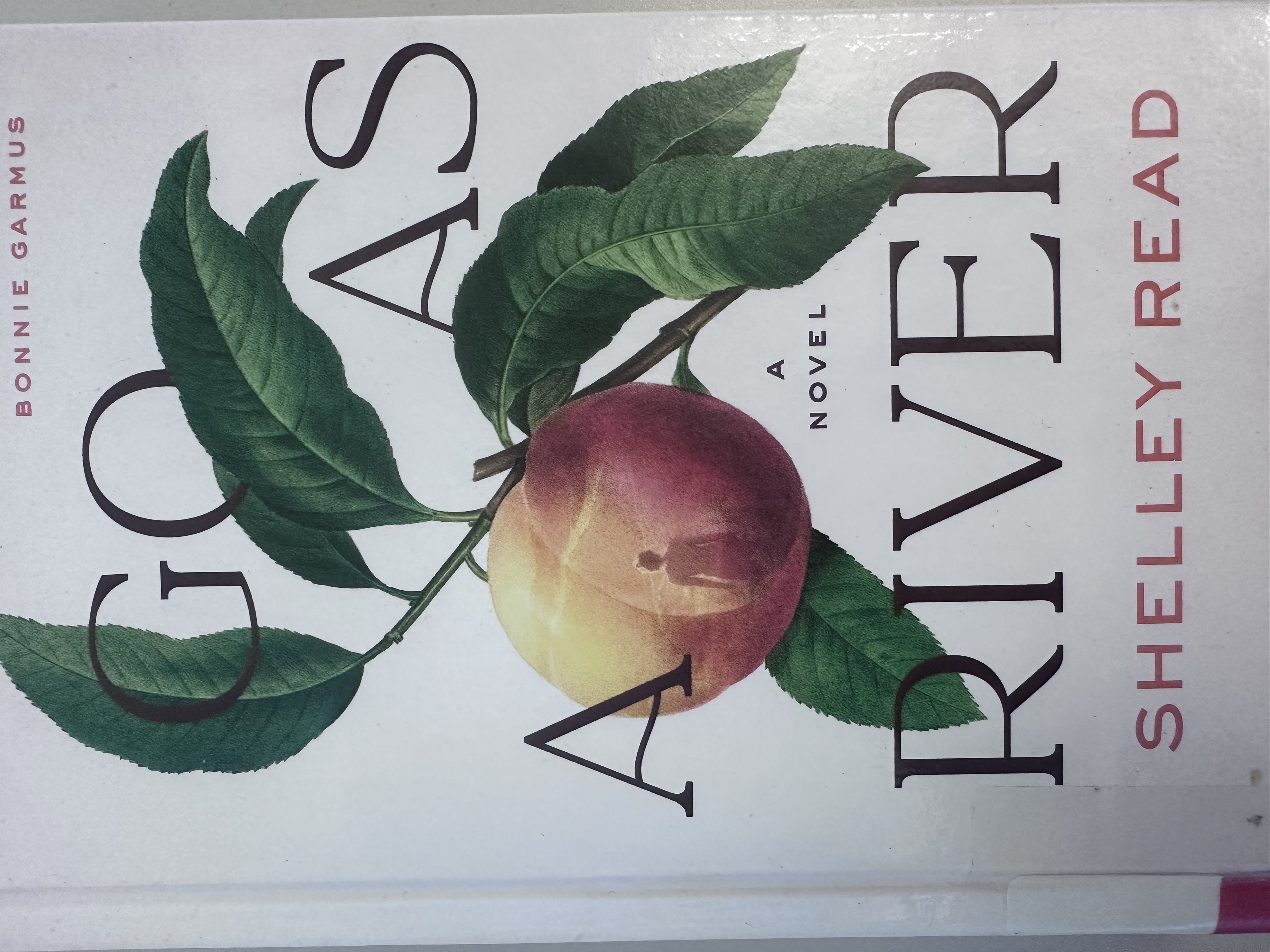
She tried her best. She really did. But sometimes life throws a curve ball that results in a foul ball.
Isolated in the gorgeous, yet sometimes brutal Gunnison River valley in southwest Colorado, the Nash family tries to carve out a living, farming and growing an orchard of prized peaches. No one thought these trees would make it, but Torie Nash's grandfather was determined. His tender cultivation strengthens the trees, starting a legacy for future generations.
Growing up in a strict, fundamental Christian home, children were supposed to be seen but not heard. Torie Nash adhered to her mother's demands, but her brother, Seth, rebelled. He was held in check until suddenly, Torie's mother passed away. Torie was 12.
Torie was left to take on all of her mother's household chores as well as learning about the peach trees. Her brother Seth fed the hogs. (Doesn't feel quite fair, does it?) He had a lot of time on his hands which turned into mischief of the worst kind.
One morning a couple years later, she awoke to a traumatic experience. Why was there blood on her bedsheet? And why did she fell so much cramping? Was she dying? Torie had no idea. Her dad knew but didn't explain anything to her. As usual, she does the best she could with the little information she got.
A few years later, as Torie is walking down the road to town to pick up supplies, a handsome stranger, Wil, about her age stopped her and started asking her questions. Taken aback, she is surprised that he pays any attention to her because no one else had. She always thought of herself as plain and homely, but Wil told her she was beautiful.
Eventually, they strike up a loving friendship that is strictly forbidden in this uneducated, bigoted area. Again, she has no idea why.
She fights for him, but soon tragedy strikes.
Sorrow follows her, but she decides to become resilient. She cannot stay in this town who could not accept her love-she will drown.
So, with limited resources she finds refuge in her beloved mountains, but there are other major obstacles to overcome.
I loved winding down and around this valley, not realizing the history of Blue Mesa Reservoir in southern Colorado. I didn't know that there were towns situated at the bottom of this reservoir before it was dammed and filled with the water from the Gunnison River. The government felt that it would be a vital source of water for the area as well as many communities in western Colorado. It seemed like a small price to pay to buy out these few families for future water resources. However, for most of the people who lived there it devastated them.
But one, in particular, rose above the dam and followed the river to freedom.
Back to the Garden
By Laurie R. King
Genre: Mystery
3 1/2 out of 4 stars
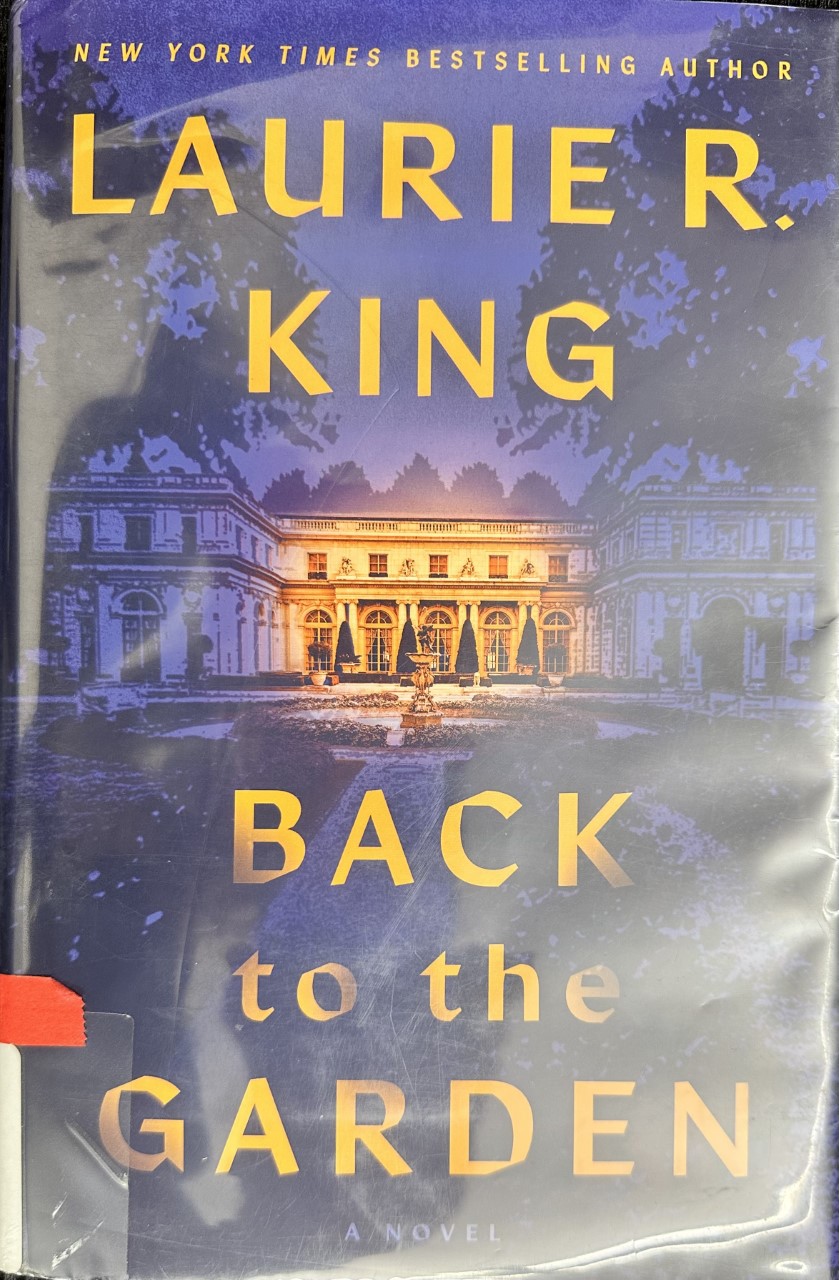
It's always fun to take a peek into the lives of the very wealthy. We think that they have it made; however, it can be very brutal.
The Gardeners have owned the Gardener Estate in northern California for many generations. The manor and surroundings were groomed to accept only the rich and famous visitors of each era. But with wealth comes expectations. The latest owner "rescued" his grandsons after his son committed suicide and brought them back to the estate; that's when the abuse started.
Flash forward to the present when SFPD Officer Raquel Laing has been investigating a rash of cold case murders in the area. The police have caught who they think is a serial killer. They have named him "The Highwayman". The only problem is, the man is very ill and is expected to die soon. He is cognizant enough to claim some of the murders, but he strings the police along in order to prolong his amusement.
One of the cold cases has to do with some bones have been found under an art sculpture that was installed on the Gardener Estate in the 1970s. Officer Laing is trying to determine who might have been buried there and whether this latest cold case can be attributed to the Highwayman.
Thrown into the mix is the fact that when the latest owner died in the 1970s, he willed the estate to his grandson, Rob. But since Rob hated his grandfather, he wanted nothing to do with the estate and all the money that came with it. His grandfather anticipated this and put a stringent condition on the bequest. What will Rob do? And will the police find out who was killed and buried under the sculpture? And why was it hidden under the sculpture?
This tale, surprising and at times riveting, creates so many emotions as we look back at some turbulent times in our history. The "Garden" beckons. And, who wouldn't want to walk under the gorgeous purple wisteria and breathe its heady aroma? Even if there is evil that lurks under it all.
The Dressmakers of Prospect Heights
By Kitty Zeldis
Genre: Historical Fiction
3 1/2 out of 4 stars
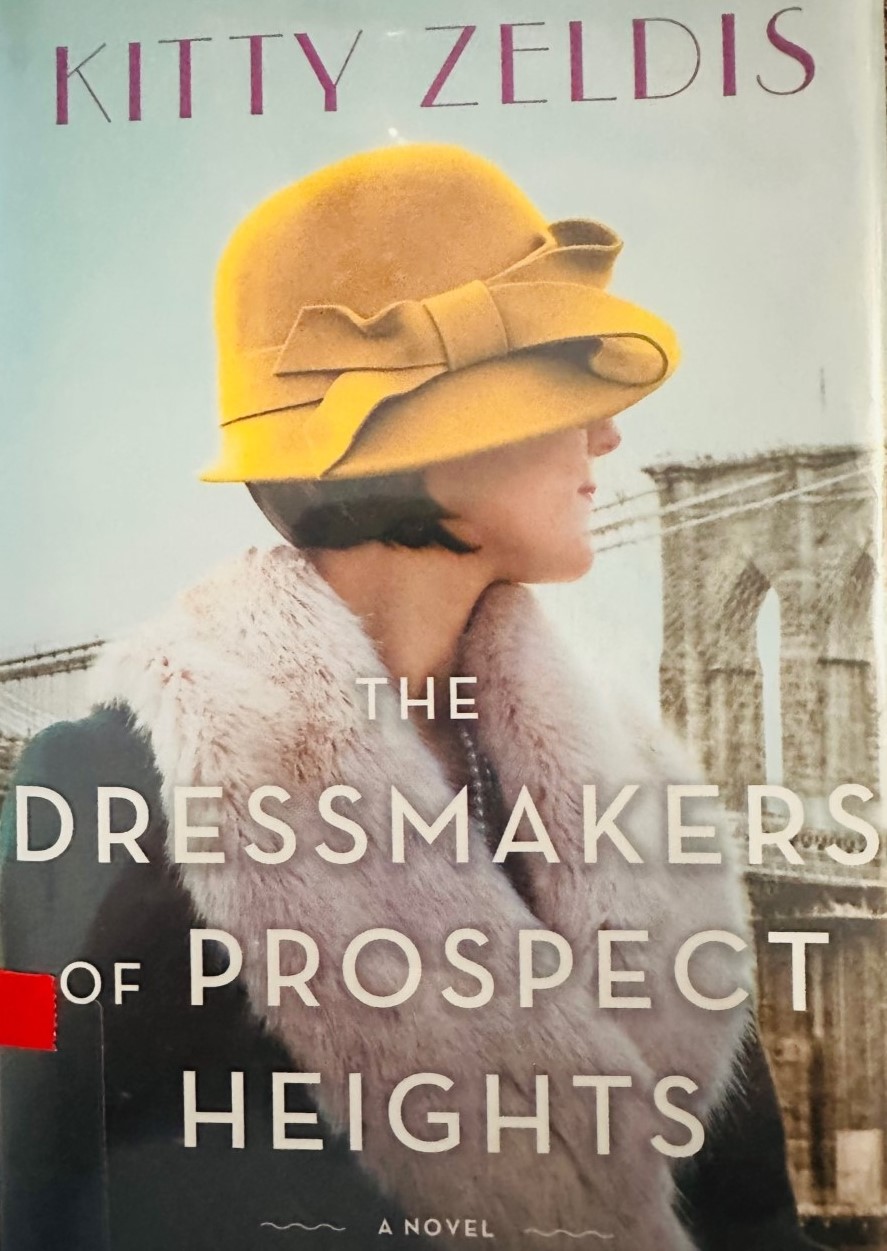
After all these years! Bea couldn't believe it! There she was, hanging up one of their newest creations in her dress boutique in Brooklyn, NY, when in steps a beautiful woman. Bea could not help but stare. Regaining her composure, she helped the woman choose an original gorgeous emerald green dress with an aubergine sash. It needed a little alteration, so Bea offered to send it to her home in a day or two. In so doing, Bea got the woman's name and address. Catherine Berill; at last, she had found her daughter!
Many years of hardship and pain led Bea to Brooklyn. She was now embarking on the most rewarding as well as challenging endeavor of her life: to be reunited with her daughter.
This story reveals the cruelty inflicted upon Jewish people both in their own country (Russia) and in the U.S, solely due to their ethnic heritage. It also shows the determination and ingenuity of those who need to discover a path to their survival first, and eventually, their triumph of happiness.
The Lost Apothecary
By Sarah Penner
Genre: Mystery
3 out of 4 stars
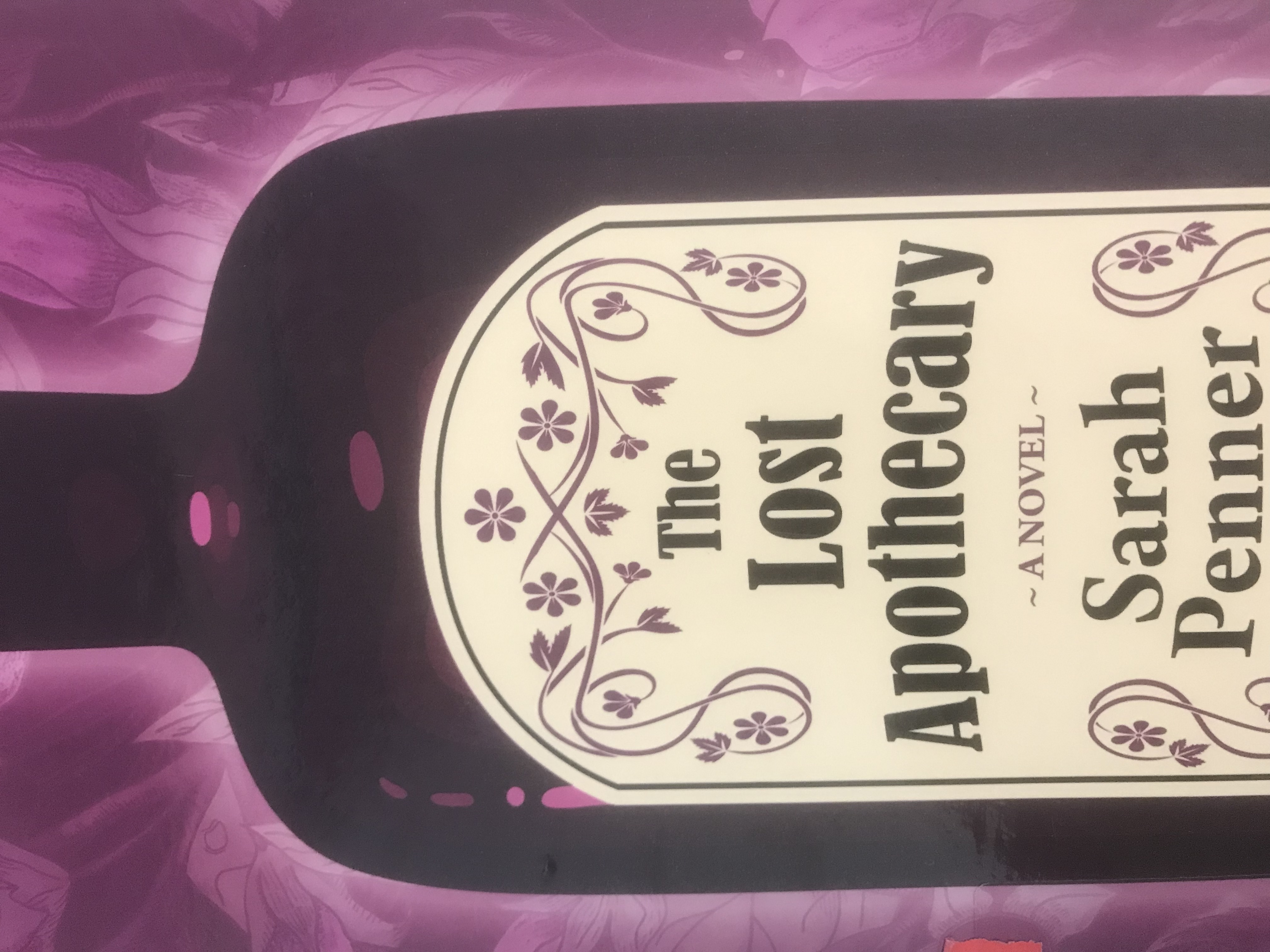
Tucked back down a lonely alley in London a tiny shop waits. Waits for letters from women who need a remedy or...redemption. Women cannot get any recompence or validation of their ills, so they steal away to this tiny shop for help. In the beginning the cures were meant for healing. Nella Clavinger has learned how to concoct special healing ointments and tinctures from her mother who opened the tiny establishment. But her mother couldn't escape old age; Nella's grief is so real it's almost palatable. In her vulnerable state a man, Frederick, worms his way into her life, lying to her from the beginning. He is charming. She falls hopelessly in love, and he professes his love to her as well. Nella becomes pregnant and is delighted. Frederick promises to marry her the next couple weeks. He made dinner for them and had a true celebration. He left, promising to return. The very next day Nella experienced severe cramping and bleeding. In a haze of pain, she lost the baby. Frederick never returned. When his "sister" whom Nella thought she helped came to Nella's shop, she told Nella that she was actually Frederick's wife. Nella was horrified to deduce that Frederick had used Nella's own potions on her, thus killing their baby. That set Nella on a very deliberate and vengeful course.
How do we know about Nella? The modern-day discovery of one of her vials that has a bear etched on the side was found on the banks of the Thames by an American woman named Caroline. Caroline happened to be in London for her 10th wedding anniversary trip. Tragically, she found out that her husband was cheating on her right before they were ready to leave. She decided to come alone. Years before Caroline had gotten a history degree and actually had applied to Cambridge University not too far from London. So, she was very intrigued and decided to dig into this mystery. It sounds a bit farfetched, but Caroline was grasping at anything she could to distract her from the pain of betrayal. Her intrepid investigating threw her into the underworld of dispensing justice.
I gave this 3 out of 4 stars because I was a bit reluctant to read about sinister tactics. But, the story developed into more about women's rights which I am always willing to explore.
The Riviera House
By Natasha Lester
Genre: Historical/Contemporary Fiction
3 1/2 out of 4 stars

Disbelief. In one shattering second Remy's life burst. Her husband, travelling too fast to get their daughter to practice, crashed their car and both he and their daughter were killed. All sorts of thoughts swirl in Remy's head: No, no, no! Not the love of my life, not my baby! If only I had picked her up. If only Tom had been more careful. If only I had stayed at home with her instead of pursuing my career. If only...
Unable to cope Remy flies to the south of France to escape the swirling thoughts. She has inherited a house Saint-Jean-Cap-Ferrat on the French Riviera and just wants to be left alone, now that she actually is alone.
But for some reason when she arrives, someone is on her terrace lying in her lounge chair. And, a family is whooping it up on her beach. She can't believe it. She'll just have to take care of that somewhat large problem.
Flash back to the early 1940s. Paris is about to be swallowed up by the hated Nazis. Eliane Dufort is working at the Louvre when the Nazis take her away and install her in another museum, Musee Jeu de Paume. Eliane is to work under another French woman, Rose Valland, who oversees the inventory. There the Nazis claimed to be taking inventory of artworks in order to "preserve" them. Eliane and Rose knew it for what it was: a colossal theft of major artworks taken from Jewish citizens who had fled or who were arrested.
They are joined by few brave, clandestine, souls who are trying to preserve the magnificent art collection in the Louvre, cataloging and coding the pieces and sending them to the French countryside to save them. Because if they don't, they fear that the Nazis will commandeer them, and they will be lost forever.
But what does this have to do with Remy and the present day? Remy and the guy, who was lying in her lounge chair, Adam, actually tentatively connect sharing a love of books among other things. When Adam bought a box of old books in the market, they discovered a catalog of Hermann Goring's artworks. After flipping through a few pages, there, right before her eyes was the painting that had been hanging above her bed all of her life. What?! How did she have a painting that is included in one of the most hated Nazi's journal? This opens up a whole new set of fears, this time concerning her ancestry. But despite her fear, she must uncover the path that is shrouded by all of the questions that arise. Is she strong enough to discover the truth?
This is a challenging, but thrilling twisting and turning plot. The only reason I didn't give it 4 out of 4 stars is that at times it's a bit like a soap opera. But mostly this is a gratifying roller coaster.
The Tenth Muse
By Catherine Chung
Genre: Realistic Fiction
3 1/2 out of 4 stars
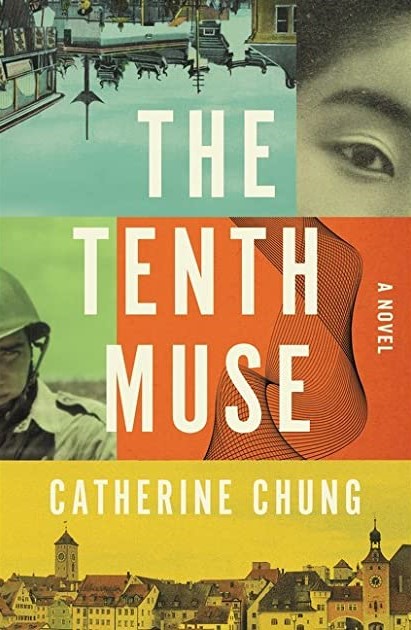
A woman who is adept at mathematics? Crazy, right? So crazy. Crazy enough for men to steal ideas and formulae from her and go about their business as though there was nothing awry. Not only that, but never disputing the rumors that "you know, she's sleeping with him" as though the men were actually the ones doing the work and she was benefitting from their benevolence.
But she was determined to make a name for herself, even if she had to leave the U.S. and go to Germany to get recognition. What she uncovered in Germany will shock you. Over and over.
The first few pages of this book were a bit cumbersome, (hence the 3 and a half out of 4), but it blossomed into an amazing story. Emotions run the gamut for the protagonist, Katherine, and the reader rides right along with her, often wanting to scream at the injustice. However, we are blessed with resolution, even if it is not a fairy tale. It is enough. For now.
Where the Crawdads Sing
By Delia Owens
Genre: Fiction
4 out of 4 stars
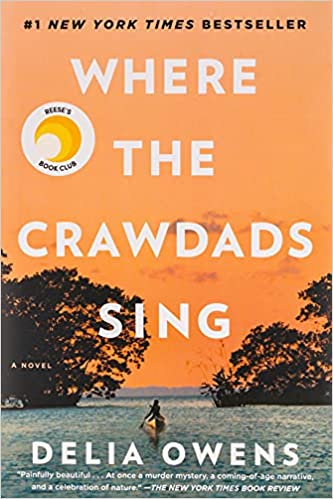
People keep leaving. First, her ma, then, one-by-one each one of her siblings leave the shack in the marsh. They never offered to take her with them; they just left. Left six-year-old Kya (Catherine) to fend for herself with the specter of an abusive pa staggering in and out of the weathered shack whenever the local saloon called his name.
She had always collected beautiful items that she found: intricate shells, wispy feathers, and anything precious that she found in her watery world. But she couldn't eat them; she had to figure out a way to survive. Her pa, or anyone else, for that matter, couldn't be trusted.
Fortunately, the beach gave her the answer. The beach, marsh and the woods always held the answer to her challenges.
Steeled with snippets of knowledge that she had gained from her brother, her ma and even her dad, she wove a solitary life for herself. So much so that the village people created their own version of her existence. Back when prejudice ruled the day in the South for anyone who was different or not white, rumors flew and grew into hateful assumptions.
She did have a couple allies: Jumpin, the man who owned the fish shack on the dock and his wife, who guided her when she most needed help.
But her greatest but oftentimes unreliable Tate gave her the most joy and the greatest sorrow. She just needs to figure out a way to prevail in this beautiful, but often toxic corner of the world. She must learn to trust her instincts.
Becoming
By Michelle Obama
Genre: Autobiography
4 out of 4 stars
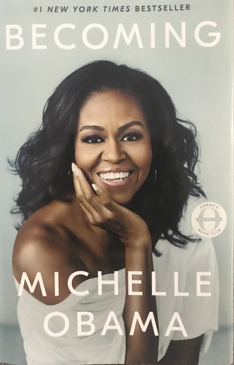
She is. Becoming. In more ways than one. And this is her journey. From her point of view. Because, after all, isn't that the truest form? Like many of us who grew up in the 50s, 60s and 70s hard work was her mantra. However, she achieved remarkable success despite the fact that she is a woman as well as one of color. So, why do some people feel the need to malign her accomplishments? Perhaps they do it due to ignorance, far-right influences, or just plain nastiness. Well, this account sets the record straight as we gratefully follow her into becoming Michelle Obama.
City of Girls
By Elizabeth Gilbert
Genre: Historical Fiction
3 1/2 out of 4 stars
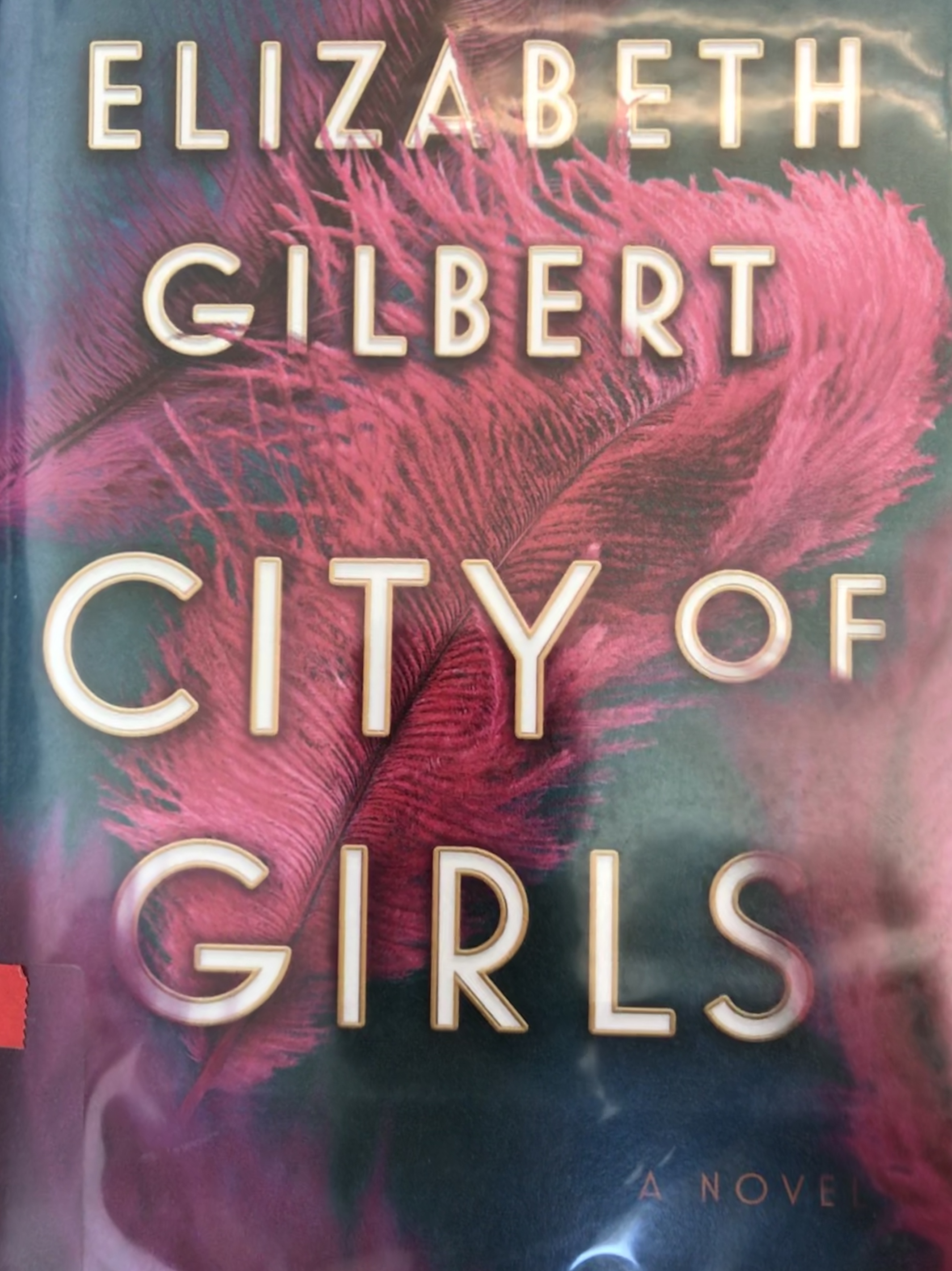
Why is it that we all are supposed to fit in society's mold? Some people do not even question it, some do and rebel, and others, like Vivian Morris, just drift in the flotsam and jetsam of the "correct" Ivy League college life. Ultimately, she gets spit out, returning humbly, if somewhat confused by the whole affair, to her WASPish family home north of New York City.
But that would not do. Her parents unceremoniously bundle her off to NYC to live with her gregarious and unconventional Aunt Peg who owned and lived upstairs in a small theater.
Vivian fell headfirst into the dizzying world of showgirls, slapstick comedy, outrageous costumes, excess living and acceptance. Life here was a whirlwind of extra sensory possibilities, that she immediately reveled in. She had finally found her place.
But even though we find our place, are we equipped to recognize all of the pitfalls?
This story of 1940 to the present New York City explores the evolution of "societal norms" and how we can navigate through expectations, given our differences. It shows how we can begin to forgive ourselves of our perceived shortcomings, even as we strive to accept and embrace the fact that we are all pieces of a beautiful puzzle.
Icy Sparks
By Gwyn Hyman Rubio
Genre: Historical Fiction
3 1/2 out of 4 stars
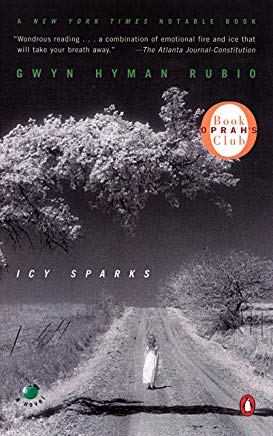
Eyes poppin' out like a frog as a loud croak escapes the little girl's lips. They named her Icy, after the Icy Creek nearby. She was a beautiful "yellow-haired" eastern Kentucky girl, born in the mountains and raised by her loving grandparents, after her parents died. But strange noises and twitches brand this otherwise intelligent girl as weird. She is unable to control her twitches and outbursts to the point that she is sequestered in a supply closet at school. Somehow, she must get control of herself. So, she decides to organize the closet into like colors to calm herself. But alas, people still don’t realize what she is doing and the principal tries to put everything back the way it was. This triggers another event that lands her in an institution. To her credit the doctor in charge does recognize Icy’s intelligence and does try to determine the cause of her "disorder". Eventually, Icy is allowed to return home with some strategies to help her calm down when an urge bubbles to the surface. The strategies don't really work, so Icy decides to stay at home with her grandparents. Fortunately, she has a beloved friend who tutors her and believes that Icy can actually go to college.
In the 1950s they were still trying to diagnose Tourette's Syndrome. In this story Icy struggles with being an intelligent person who just happens to have this condition. A story like this reminds us that we need to look beyond the appearances and realize that we all have our struggles.
All the Light We Cannot See
By Anthony Doerr
Genre: Historical Fiction
3 1/2 out of 4 stars
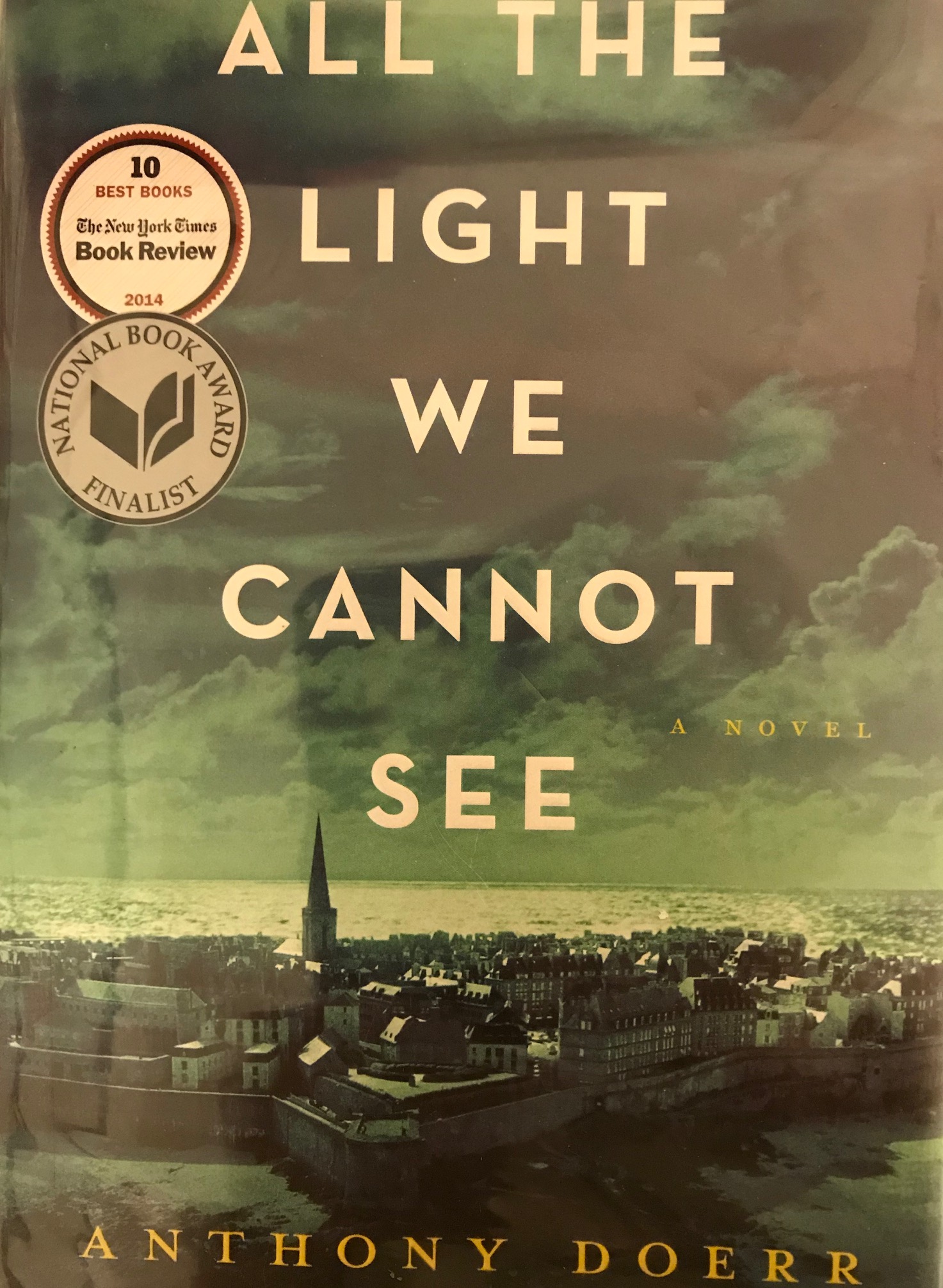
Marie-Laure has lost her sight. Now, her father prepares her to be as independent as possible. He creates a scale model of their Parisian neighborhood so that she can memorize where everything is. When they go outside to stroll along the pretty streets of 1934 Paris, she counts her steps, trying to burn the way into her brain. Her quick mind grasps it all, and soon she can venture out alone.
Werner and his sister, Jutta, live in an orphanage in Zollverein, Germany. It is a mining town and the mine is where they lost their father. The expectation is that all the orphan boys will work in mine once they turn 16. But Werner has other plans. Turns out, he is a gifted engineer, tinkering with anything he can get his hands on, particularly the broken radio they found in the attic. With a few adjustments, Werner tweaks the radio and they can hear broadcasts from as far away as France. The French voice is gentle, and they look forward to hearing it every day.
But soon everything changes, both in France and in Germany. The Nazis have invaded France and Marie-Laure and her father must flee Paris. After a grueling trip, they end up limping into Saint-Malo where Marie-Laure's great uncle lives. For a time, they have shelter and are safe. But for how long?
Werner's brilliance gets noticed and he is sent to an exceptional boys' school where he works in a technical lab all day. He is happy that he does not have to work in the mine, but is this worse?
Doerr offers examples of two very different lives, but we realize that they are similar, even though they are on opposite sides of the war. When their lives intersect in Saint-Malo, their bond is immediate. They discover an amazing link. Werner exonerates himself, fighting off the notion of being good and instead doing what is right. And, with Werner's help and because of her bravery, Marie-Laure counts her steps back to her beloved Paris.
The Goose Girl
By Shannon Hale
Genre: Fairy Tale
3 1/2 out of 4 stars

There is always that one person. The one who is beautiful, amiable, witty, self-assured. The one who always seems to know exactly what to say, how to act and whom to cozy up to, in order to get what she wants. Ani, the Crown Princess is not that person. She always feels awkward and, indeed, is often told how plain she looks. She often wishes that she had the gift of "people-speaking" as her elegant, gorgeous mother, the queen, displays.
But Ani has found an ally, a true friend in her beloved aunt who tells her the stories of the earth, and teaches her the language of birds, particularly the voices of the swans. Even when a royal colt is born, Ani hears the first word out of his breath: "Falada", which her aunt explained is his name. She is ever spiritually tied to him.
Unfortunately, things cannot remain in the same idyllic story-telling, swan-filled hours. Her aunt suddenly leaves the kingdom and Ani is left to her own devices.
Years later, after her father dies, her mother decides that Ani is not suitable to rule and proclaims her younger brother as the next heir-apparent. The queen arranges a marriage for Ani with a prince in a neighboring kingdom. She feels that this will unite the two kingdoms and keep war at bay. Even though Ani feels betrayed, she presses on, taking Falada on her journey with her and also her lady-in-waiting, Selia.
But her supposed friend, Selia, and many of the security detail charged with protecting Ani until she reached the next kingdom are not what they seem.
Timid Ani must learn to stand up for herself. Her very life depends upon it.
This story is based upon a Grimm's Fairy Tale. I love that that the main character must find strength within her being to overcome the many obstacles thrown in her path. I often felt that I wanted to "help" her, offering suggestions in my mind. But, isn't that what we often do? Often, we suggest solutions for others that we might need to take ourselves. Stories like this might help us on the path to resolving our own shortcomings, and assist us instead in focusing on our own qualities and abilities.
The Winter Witch
By Paula Brackston
Genre:Mystery
4 out of 4 stars
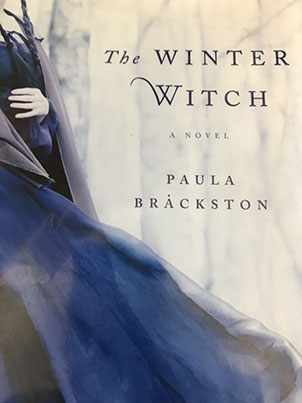
Morgana feels differently from her classmates. And it's not just because she is mute. Some say that she chooses to be mute, that she used to speak before her father abruptly left. What's wrong with her? So, of course the schoolkids start to pick on her, one kid in particular. But she won't have it. Something unearthly wells up from her being and takes care of the situation. Her mother, fearing even more repercussions, takes her out of school for her own protection.
The years fly swiftly by and Morgana's mother knows that she needs to find a husband for her unique daughter. She looks beyond their village and soon finds a young widower who has shown interest in Morgana at the market where they peddle their homemade cheese.
Morgana would rather stay with her mother, but her mother is adamant. She feels that this choice for Morgana, Cai Jenkins, is perfect: he owns a long-standing family farm, Fyynnon Las and is projected to be the main livestock drover for his locale, (far enough away from the "trouble" in their own village).
Cai and Morgana soon grow to appreciate, even love each other, but there is an evil spirit that means to tear them apart. Morgana must try to corral her temper and work to vanquish this evil plan.
I rarely give a book 4 out of 4 stars. I loved this book.
With a rich style of story-telling, Brackston creates suspense keeping the reader wondering about the outcome. Just when we think the matter is resolved, the author hits us with another twist, unraveling the whole story only at the very end. Quite satisfying.
The Queen's Handmaid
By Tracy L. Higley
Genre: Biblical Fiction
3 out of 4 stars
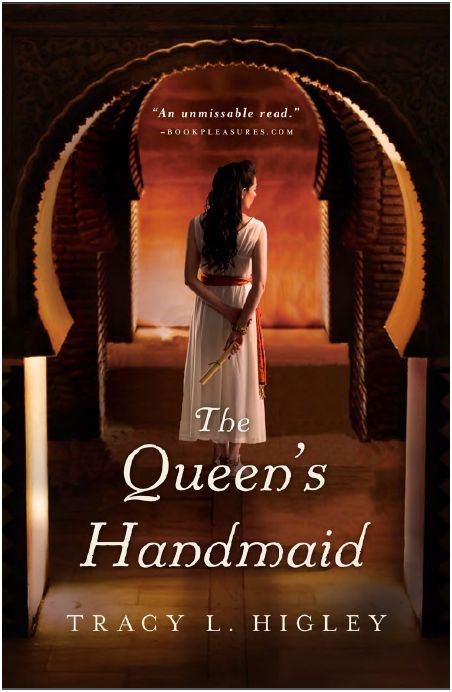
One night it all changes. Her elderly friend and mentor, Samuel, reveals that he has been carrying a secret about her parentage all her life. Cryptically, he assures her that the power of The One God will watch over her. He gives her a mysterious pendant and ancient scrolls urgently telling Lydia that she must deliver the scrolls to the Chakkyim. These scrolls must not fall into the wrong hands; she needs to guard them with her life. A man wearing a red and white striped mantle will be waiting on the steps of the temple in Jerusalem on the day of atonement, Yom Kippur, to take the scrolls from her and deliver them to the Chakkyim. Then Samuel dies in her arms without any more explanation. How will she get to Jerusalem?
At this time Herod is visiting Cleopatra. He observes how well Lydia serves Cleopatra and asks to take Lydia back to Judea to be his fiance's handmaid. At first Lydia resists going anywhere with this ominous man. However, forces are at work to change her mind. Cleopatra have just ordered one of her servants killed right in front of her, Cleopatra's son and Herod. Lydia now feels that it is too dangerous to stay, worried that she will be killed next, being so close to the volatile Cleopatra. And, she feels like she must fulfill Samuel's request. She must go to Jerusalem. But Jerusalem is far from safe.
While this is not exactly Biblical, there are several characters in this book that we see in The Bible. Higley shows us part of Herod's story that we don't hear in The Bible. She also touches upon the politics of the day concerning Egypt, Rome and Judea. While I have studied The Bible extensively, it was enlightening to look into the lives of some of the players who formed such widespread belief that we see today.
Lisette's List
By Susan Vreeland
Genre: Historical Fiction
2 1/2 out of 4 stars
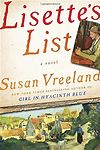
However, once they arrived in the little village of Roussillon, they discovered that Andre's grandfather, Pascal, wasn't sick, he was just old. Even though Lisette felt somewhat deceived, Pascal soon won her over with the urgency of telling her his life story. Particularly with respect to the paintings he had acquired from Cezanne, Pissarro and Chagall. Now this was an aspect of the French countryside she could appreciate.
Since she had more time in this pastoral life and since Andre was off trying to eke out a living constructing frames for paintings, Lisette began to make a list. "Lisette's List of Hungers and Vows." Vows like: "love Pascal as a father" and "do something good for a painter". Hungers like: "Go to Paris, find Cezanne's Card Players" and "Make a blue dress, the blue of the Mediterranean Sea on a summer day with no clouds". As the world plunged into the second world war, her list and her life became increasingly urgent. And like many from that era, her life was shattered.
This story mimicked what it took to read it. It took patience to appreciate the lovely side of simple living. Once I settled down and delved deeper into the message and the romance of Provencal 1930s-1940s France, I was able to appreciate the ebb and flow of this tale. And, the mystery of the missing paintings added just enough to spice to hold the readers' curiosity.
The Invention of Wings
By Sue Monk Kidd
Genre: Historical Fiction
3 1/2 out of 4 stars
 Some people get an inkling that something is very wrong with their upbringing. Sarah Grimke was born and bred in an affluent South Carolina household in the early 1800s. When she received her own slave as an eleventh birthday present, she knew that feeling had magnified. She tried to give the slave back, to no avail. For years Sarah tried to make the best of it, trying to protect Handful, her slave, from the worst indignities and punishments. And since she wanted nothing to do with slavery, she did manage to give Handful back to her mother. She was not allowed to set Handful free. Along the way Sarah realizes that as a woman she was not free to pursue her own type of happiness either. Her mission was not only to free slaves from bondage, but to form a rallying cry for gender equality.
Some people get an inkling that something is very wrong with their upbringing. Sarah Grimke was born and bred in an affluent South Carolina household in the early 1800s. When she received her own slave as an eleventh birthday present, she knew that feeling had magnified. She tried to give the slave back, to no avail. For years Sarah tried to make the best of it, trying to protect Handful, her slave, from the worst indignities and punishments. And since she wanted nothing to do with slavery, she did manage to give Handful back to her mother. She was not allowed to set Handful free. Along the way Sarah realizes that as a woman she was not free to pursue her own type of happiness either. Her mission was not only to free slaves from bondage, but to form a rallying cry for gender equality.
Handful just wanted to be free.
Poignant and often horrifying, Kidd alternates the story between Sarah and Handful, giving us both perspectives on life in Charleston during the pre-Civil War era. We watch as both girls mature and find their way with increasing tension and menace. Since this chronicle is based on a real-life person, it feels more authentic. We often feel terrified for Handful and to a certain extent for Sarah albeit in different ways. Sarah's mother's cavalier attitude of the treatment of her slaves infuriated me. Indeed, her cruelty shocked me. Every once in a while, we need to be reminded about what happened to the slaves and the continued fight that people of color wage on a daily basis. Then, maybe we will begin to understand why people are kneeling during the national anthem at football games. And then do something about the hate in this world.
The Cuckoo's Calling
By Robert Galbraith
Genre: Mystery
3 out of 4 stars
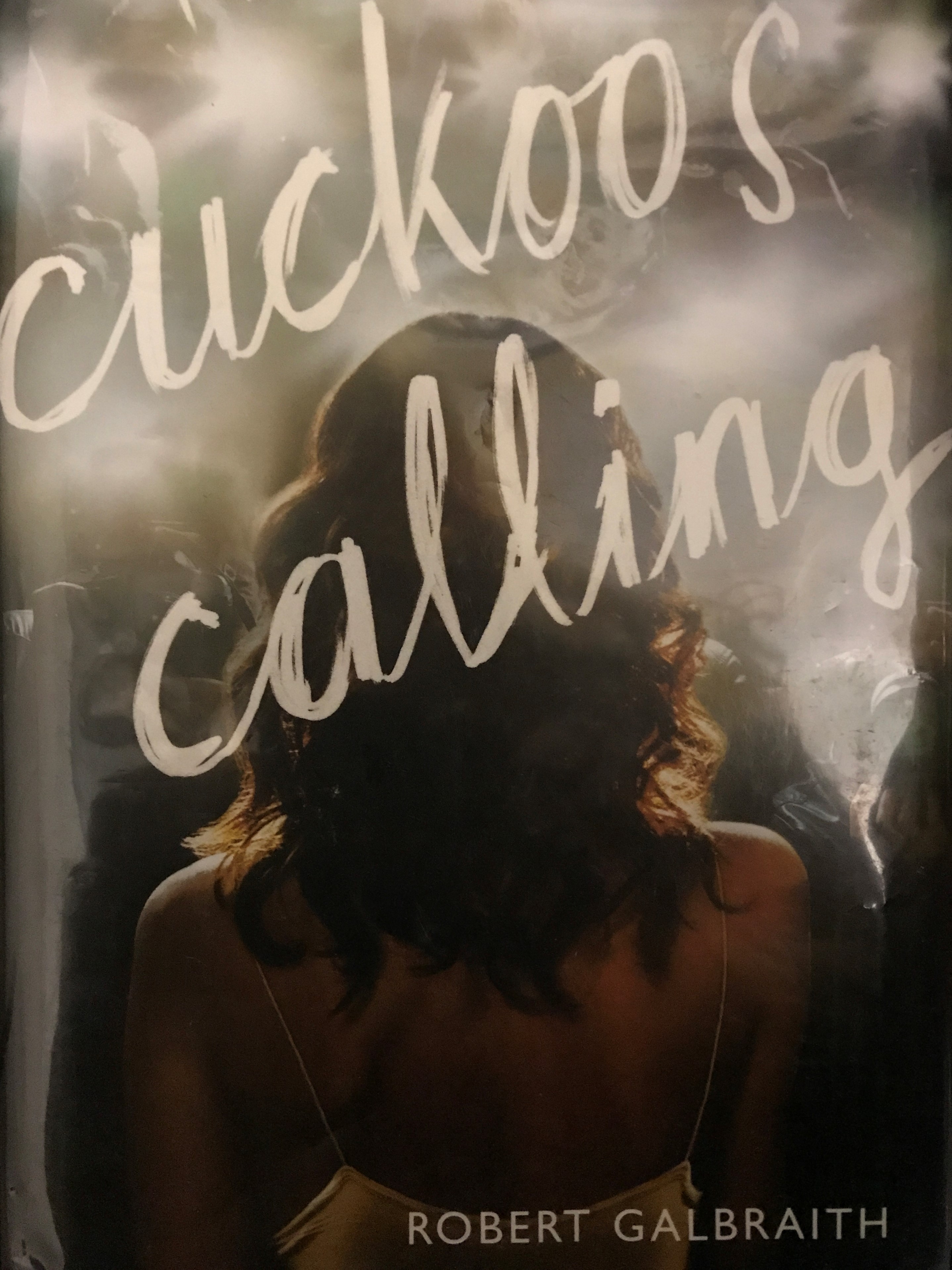 The Cuckoo is calling, calling for someone, anyone, to investigate her "apparent" suicide. The problem is that all the evidence leads to a depressed, somewhat lost, super model Lula Landry (a.k.a. Cuckoo) who is over the mega fame that she has had to endure. The paparazzi, "paps", as they are also called, hang around like wolves, hoping to gain a little insight or a photo to feed their appetites. Sometimes it's just too much.
The Cuckoo is calling, calling for someone, anyone, to investigate her "apparent" suicide. The problem is that all the evidence leads to a depressed, somewhat lost, super model Lula Landry (a.k.a. Cuckoo) who is over the mega fame that she has had to endure. The paparazzi, "paps", as they are also called, hang around like wolves, hoping to gain a little insight or a photo to feed their appetites. Sometimes it's just too much.
But her brother, John, doesn't think so. He has decided to hire a down and out private eye to look into her death. John has hired his late brother's friend, Cormoran Strike, who has had more than his share of horrific issues to deal with. He sprang from a fling his super groupie druggie mother had with Jonny Rockby, a famous rock star. Of course, his father never acknowledged or supported him. Eventually, he joined the army and subsequently lost his leg in Afghanistan after a storied military career.
Despite his military career and since clients aren't beating his door down, he decides to limp into the seedy alleys of the rich and famous, hoping that his bulk and his lineage are intimidating enough to fake his way. With the help of his eager temporary office assistant, Robin, they uncover the rats who lurk in unexpected crannies.
You might think that you can predict the outcome of this tale. However, J.K. Rowling is a master at covering every detail. (What? You didn't know that Robert Galbraith is Rowling's pen name?) Moreover, she weaves several scintillating side stories into the main one, and they all converge into a satisfying conclusion. Indeed, her characterization is so rich that you will find this book difficult to put down.
A Taste for Nightshade
By Martine Bailey
Genre: Historical Fiction/Thriller
3 out of 4 stars
 Mary Jebb has had to fight and claw her way in life just to survive. Not one of the fortunate, she slid into a life of crime. So far, she has escaped capture, but this time she duped a man's brother, Michael Croxon, who would not rest until he found her, turned her over to the police and have her prosecuted. Still only in her teens, she was now faced with a gruesome hanging death. But somehow, she was spared from the noose, only to be transported to Australia for seven years. Just before her ship sailed, she vowed to get her revenge by sending an engraved "Penny Heart" to the one who would not let her go.
Mary Jebb has had to fight and claw her way in life just to survive. Not one of the fortunate, she slid into a life of crime. So far, she has escaped capture, but this time she duped a man's brother, Michael Croxon, who would not rest until he found her, turned her over to the police and have her prosecuted. Still only in her teens, she was now faced with a gruesome hanging death. But somehow, she was spared from the noose, only to be transported to Australia for seven years. Just before her ship sailed, she vowed to get her revenge by sending an engraved "Penny Heart" to the one who would not let her go.
Hard times have fallen on even the prosperous. Grace Moore's father, a talented printer, has lost most of his business due to the incendiary leaflets he has printed championing the common man. The result is that he drinks more and more, abusing his daughter in the process. One day an offer of marriage to an eligible bachelor from a successful family surfaces, and Grace can hardly believe her luck. Since she has been made to feel inferior, she explores why anyone, not to mention handsome (she's heard) and privileged would want to marry her. Turns out, to her surprise, a lucrative parcel of land has been willed to her and only her, by her grandmother. So, feeling confident in her prospects, she goes ahead and marries Michael Croxon. But he is not what he seems.
Can you imagine what ensues?
Bailey's characters are rich and varied and weaves many paths into her stories. Just when readers think they have the whole plot figured out, it runs hell-bent down a tunnel away from the expected. This tale at first seems benign, but often there is a knife's edge of suspense. You will love the ending.
From the Kitchen of Half Truth
By Maria Goodin
Genre: Magical Realism
3 out of 4 stars
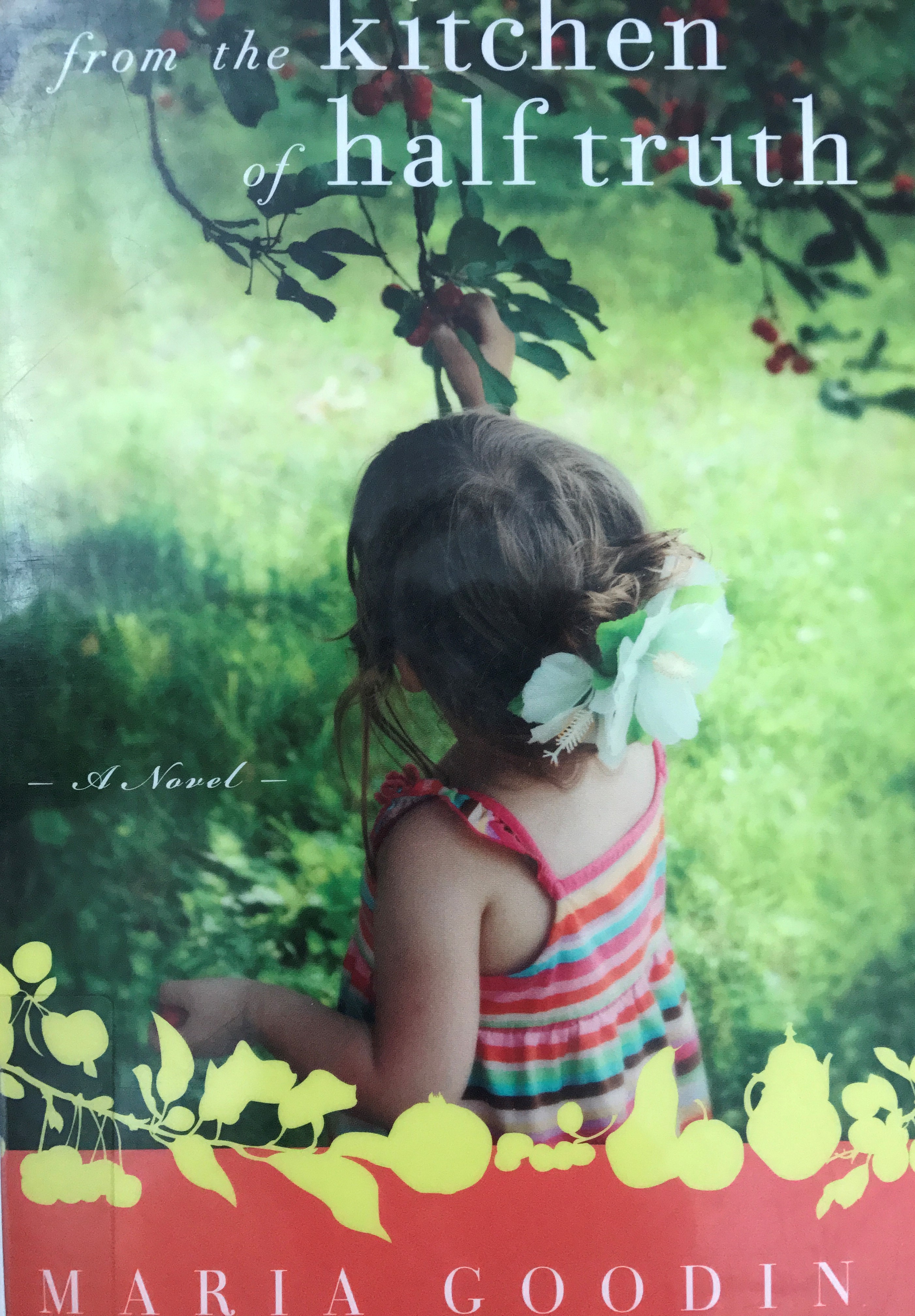 I must admit that I almost abandoned this book into the "started, but didn't finish" pile of books in my life. However, the more chances I gave to this little story, the more felt like I needed to see it through. Soon, I was looking forward to spending time with Meg and her mother Val.
I must admit that I almost abandoned this book into the "started, but didn't finish" pile of books in my life. However, the more chances I gave to this little story, the more felt like I needed to see it through. Soon, I was looking forward to spending time with Meg and her mother Val.
Fantasy can be fun, but sometimes when people use it to escape reality and pass it off as truth, it can be damaging. Val has always regaled her daughter, Meg, with wild stories about Meg's early childhood. Cute anecdotes like the time when they were in the kitchen, and Val is about to chop the runner beans when they all leapt up and ran away. They start running in circles around Meg, and Meg is laughing. Her mum "knew she shouldn't have bought runner beans" all the while chasing after them. This is all very cute, but when Meg writes about it in class as her first memory, and shares in class as truth, she is ridiculed. The teacher even goes as far as to say that she is lying. She has told several of these stories to her friends on the playground. At first, they think that they are cute stories, but soon they start making fun of her, when she insists they are truth. After that comes alienation.
So, Meg sets out to study only science and fact. She has eliminated all forms of fantasy and superfluity from her life. She even is dating a no-nonsense man who perpetuates this lifestyle. Even to the point of controlling Meg and suggesting that her mother is a liar and unstable.
She has avoided her mother as of late due to all of her silliness, but she has just found out that her mother is desperately ill. She travels home from college to be with her and finds that her mother still hangs on to many of these wild yarns about their early lives. Eventually, Meg realizes that she doesn't have much time to discover the truth about her first few years, and decides to pursue some clues. The problem is, many times the truth is not something anyone wants to uncover.
Sometimes when a book reflects a part of life that maybe does not want to be illuminated, it's hard to keep reading. But, in this case, the wise benefits outweighed the remembrance of humiliation. People have different ways of coping, and to realize that sometimes takes years.
I hope I can remember that I don't always know what people have gone through or are experiencing in the present. And, perhaps, to make sure that I give out kindness rather than judgment.
The Audacity of Hope
By Barack Obama
Genre: Politics
4 out of 4 stars
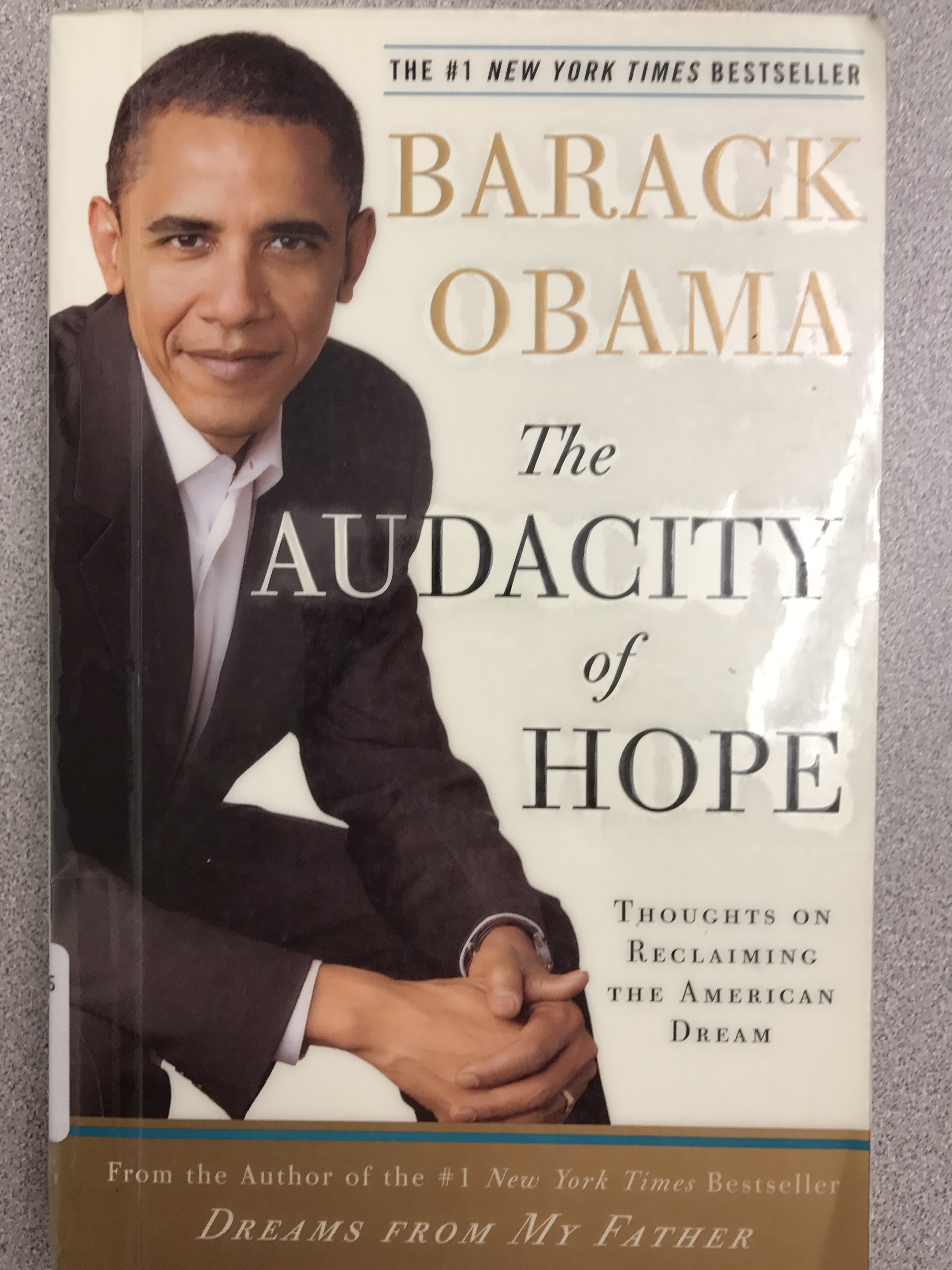 Every once in a while we are fortunate enough to elect a good man to our highest office. A man who loves his family, loves his fellow man, and loves his country. This man is actually willing to converse and collaborate with other leaders of the free world in order to navigate toward solutions to problems that affect us all. Barack Obama is that man.
Every once in a while we are fortunate enough to elect a good man to our highest office. A man who loves his family, loves his fellow man, and loves his country. This man is actually willing to converse and collaborate with other leaders of the free world in order to navigate toward solutions to problems that affect us all. Barack Obama is that man.
When we think about hope, we tend to think that it is unattainable. However, in this book, Obama outlines ways and means in order to move toward a more perfect union, methods that will fundamentally go beyond hope, into the realm of actuality.
Indeed, many people in this world struggle with simply trying to provide the basic needs for their families. Some of these people, mainly people of color, encounter obstacles daily solely due to the color of their skin. "After all, spending one's days refuting stereotype can be a wearying business" (Obama 236). For people who have been profiled, the days can offer little respite.
Enter the person who was willing to listen and has actually experienced the kind of ridiculous typecasting used to keep people of color from accomplishing their full potentials. In his eight years as president he forged a new way of dealing with international issues: with collaboration. In the past, other presidents have simply used their power to invade other countries with little or no evidence to support such an assault. America became the bully. And as we all know, "no person, in any culture, likes to be bullied" (316).
But that is not to say that terrorists could get away. In his administration, our special forces hunted down and eliminated both Saddam Hussein and Osama bin Laden, two of the most heinous purveyors of terror in our time.
He also tackled perennial issues such as abortion, health care and gay marriage.
I realize that it may be difficult for some to break some of the stringent ties that come with religion. Even when evidence is presented to the contrary, some refuse to accept another side just because that way of thinking doesn't match the hard line that they grew up with. However, when it comes to love, we need to remember that not all people are alike. I can relate to President Obama's feelings when he states, "perhaps I find the ways of the human heart too various, and my own life too imperfect, to believe myself qualified to serve as anyone's moral arbiter" (336). "Judge not, that ye should not be judged" (Matthew 7:1). Walk a mile in another's moccasins. Etc.
OK, there will always be some sort of judging. It's human nature. But the key is to make sure you are not harming someone in the process. If you live positively, differences will cease to matter and you will begin to entertain other ideas and welcome everyone regardless of color, age and lifestyle. Once we realize that we're all pretty similar, we can have hope for our future.
The Bookman's Tale
By Charlie Lovett
Genre: Historical Fiction
3 1/2 out of 4 stars
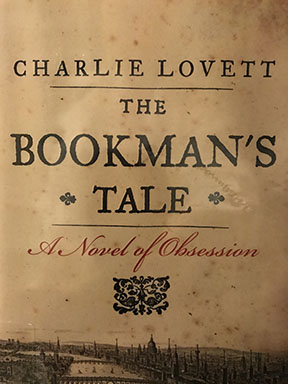 Sometimes we forget that politics and intrigue have been interwoven into society for thousands of years. It doesn't matter if we are just trying to find a place in civilization or if we are actively involved in the subterfuge. It all affects us in some way.
Sometimes we forget that politics and intrigue have been interwoven into society for thousands of years. It doesn't matter if we are just trying to find a place in civilization or if we are actively involved in the subterfuge. It all affects us in some way.
Such was the case in Shakespeare's time and shortly thereafter. Since the accepted works of Shakespeare are so brilliant, there are theories that he didn't pen them at all; some believe one or more of his contemporaries did and he took credit for them. Imagine what the truth would mean to the literary world.
Fast forward to the 1980s. Peter Byerly is the quintessential bookworm. His brilliance propels him to attend the local Ridgefield University despite his dysfunctional upbringing. Uncomfortable with society, he seeks solace in the university's library, and ultimately secures a work-study position there. His passion for literature does not go unnoticed. Soon, he is assistant curator in the "Amanda Devereux" rare books section of the library.
Since he spends almost all his free time in the library, he can't help but notice a beautiful young woman who frequents the library. After several weeks, she finally approaches him and their romance blooms. Her name is Amanda.
But what is Peter supposed to do when life throws him a ridiculously challenging breaking ball? True to form, he immerses himself in his work. This time he travels to England to investigate the theories surrounding Shakespeare's credibility. Even to the point of personal peril.
A jumble of romance and fascinating mystery, you'll love riding the coaster of emotions with Peter and Amanda.
The Lost Symbol
By Dan Brown
Genre: Adventure
3 1/2 out of 4 stars
 I've always wondered about the power of focus. When I grew up, it was called prayer. But, there are many schools of thought that spotlight focus as the force that changes situations. Some call it mindfulness, conscious thought, being "in the zone", and a myriad of other words and phrase that help people cope and train.
I've always wondered about the power of focus. When I grew up, it was called prayer. But, there are many schools of thought that spotlight focus as the force that changes situations. Some call it mindfulness, conscious thought, being "in the zone", and a myriad of other words and phrase that help people cope and train.
But can thought actually be quantified? Can a human soul be weighed? Robert Langdon returns in this adventure, again utilized for his considerable knowledge in symbology. It seems that someone has used a very old symbol to initiate a breakneck hunt to find and save one of Langdon's friends, Peter Solomon. And, along the way, stop a very real national crisis.
But, what does this have to do with focus? In this book, Peter Solomon's sister, Katherine, is an expert in Noetics, which is the study of inner thought, focus, and how it relates to proven thought. She is on the verge of publishing her startling research, and wants to tell her brother about it. However, multiple attempts to contact him prove unfruitful. He's never been unavailable to her. Strange...
True to form, Brown delivers another adventure, keeping readers whirling around in a vortex of plot twists. He also makes us stop and think. The power of thought. I know that some people may protest that prayer and focus are two separate activities. And, I respect that. However, I have recently decided to open my mind to other possibilities. Once I realized that some of these ideas were virtually the same, and just a matter of semantics, I found that I was better able to relate to more people. Notably, we are not as different as we previously thought. Maybe to establish a more harmonious world, we can come to a consensus instead of pointing out differences.
Lavinia
By Ursula K. LeGuin
Genre: Historical Fiction
3 out of 4 stars
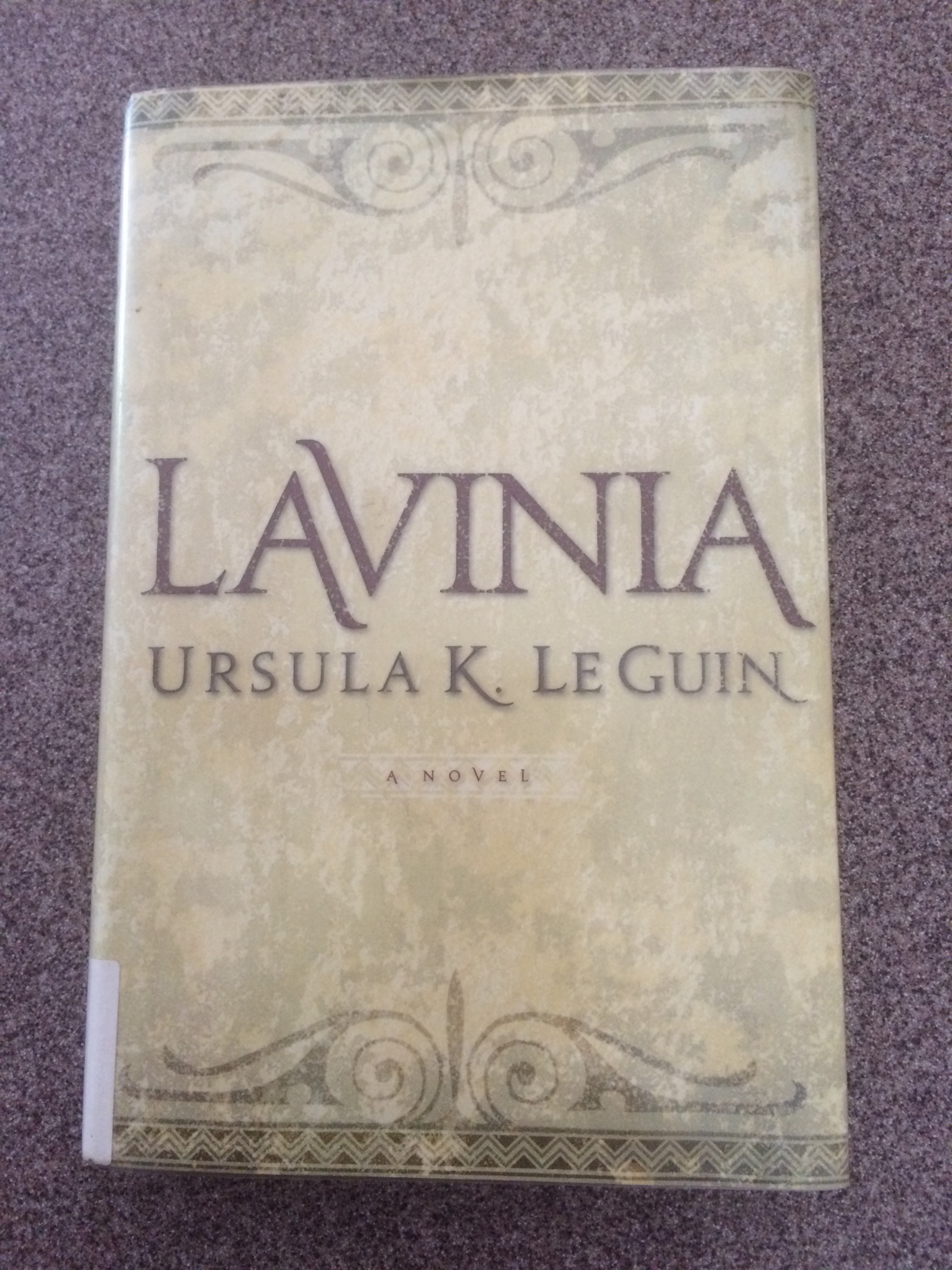 I admit, that I have not read Virgil's Aeneid. But, I am intrigued by ancient civilizations. So, when I read the blurb indicating that this story was based on the Aeneid, AND was told from a woman's perspective, I jumped on board.
I admit, that I have not read Virgil's Aeneid. But, I am intrigued by ancient civilizations. So, when I read the blurb indicating that this story was based on the Aeneid, AND was told from a woman's perspective, I jumped on board.
Lavinia is a Latin princess, living on the Italian boot before it was known as such. Rome has not yet been established. Her father, King Latinus, has crafted an era of peace, which comforts Lavinia. She discovers that she has special powers after visiting the area known as Albunea, privy to messages from higher powers.
Before anyone knows it, Lavinia becomes a beautiful young woman. Naturally, suitors visit the kingdom to ask (compete) for her hand in marriage. Her mother favors (vehemently and inappropriately) Turnus, who is her nephew and king of a neighboring land. She thinks that Lavinia will be her timid and compliant self and just accept anyone her mother favors. However, Lavinia finds Turnus arrogant and rash. Readers might think that a mere girl who not have any say in whom she marries. Her method might surprise them.
However, this story is not just about a girl challenging her mother. Tradition meets innovation with mystical powers mingling in between. The story lags at times, but if you like ancient tales, try this example of "her"story for a change.
The English Girl
By Daniel Silva
Genre: Spy/Thriller
3 1/2 out of 4 stars
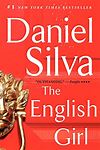 It is my biggest fear: that my kids would be snatched by some unscrupulous character.
It is my biggest fear: that my kids would be snatched by some unscrupulous character.
So it's no wonder that this book freaked me out from the beginning.
Madeline Hart, a beautiful "British Party" political rising star, decided to travel to the exotic island of Corsica with a few friends for a much-needed vacation. Madeline was the independent member of the group, often leaving the villa early on her moter scooter, returning with no explanation.
So, it came to no surprise for a couple of daus that Madeline didn't return at all. That was Madeline. Her friends, did, however, call the gendarmes when she did not return on the day they werre to depart for home. Something was wrong.
Since it was in the French jurisdiction, it would not seem probable that the British authorities would get involved, even for a British tourist. But when an envelope containing a single sheet of papaer was delivered to the British Prime Minister's Director of Communications, the situation surrounding Madeline Hart's disappearance escalated.
"You have seven days, or the girl dies."
The information on the sheet was so volatile that, instead of the police, it was shown to Graham Seymour, Director of MI5, Britain's Security Service.
Seymour knows that this material is so sensitive that it needs to be handled by someone experienced in clandestine affairs. He chooses Gabriel Allon, the infamous Israeli guardian and avenging "angel".
What follows is a break-neck romp throughout Corsica, France, Russia and England to try to find Madeline Hart. All for a single British citizen, you ask? What transpires may (or may not) shock you, but it definitely made me consider more thoroughly my purchases and investigate where they originate, how that country treats its citizens and the rest of the global community.
The Garden
By Elsie V. Aidinof
Genre: Biblical Fiction
3 out of 4 stars
 A new awakening dawns in a lush garden. This new being has to discover what she is. Fortunately, she is not alone. A beautiful and wise creature is there to support and guide her in her quest for knowledge. He introduces himself as The Serpent. Her name is Eve.
A new awakening dawns in a lush garden. This new being has to discover what she is. Fortunately, she is not alone. A beautiful and wise creature is there to support and guide her in her quest for knowledge. He introduces himself as The Serpent. Her name is Eve.
We have learned about a similar story when we were in Sunday School or perhaps a humanities class. However, this tale comes from Eve's perspective, rather than the patriarchal form found in the Bible. In this version, The Serpent allows Eve to ask questions without the fear of reprisal. With his intellectual and caring guidance, they develop an amicable relationship, full of trust and respect.
Eventually, Eve is introduced to God, the creator of all she knows. She thinks that she can go on asking questions and learning like she is used to. God, however is not used to being questioned, and reprimands Eve for interrupting him. That doesn't sit well with Eve.
At the same time she is introduced to God, Eve is introduced to Adam, a boy whom God is instructing. But God has a different way of teaching. His way is by rote memory and sitting still. Curiously, Adam constantly fidgets, or is often late to the lessons. He can't remember what he's taught; he would rather create things with his hands or race gazelles. Even though they are quite different, Eve and Adam become friends.
But, life in the Garden is far from perfect. And not from whom you might expect.
Some people might think that this rendition strays too far from the original Biblical creation story, even possibly sacrilegious. However, if readers are willing to look at this book as a way to explain some of the questions that may arise when reading the Bible, they might find some kinship with either Eve or Adam. Or both. And, maybe The Serpent isn't as bad as we thought he was.
An Appetite for Violets
By Martine Bailey
Genre: Culinary Gothic
3 1/2 out of 4 stars
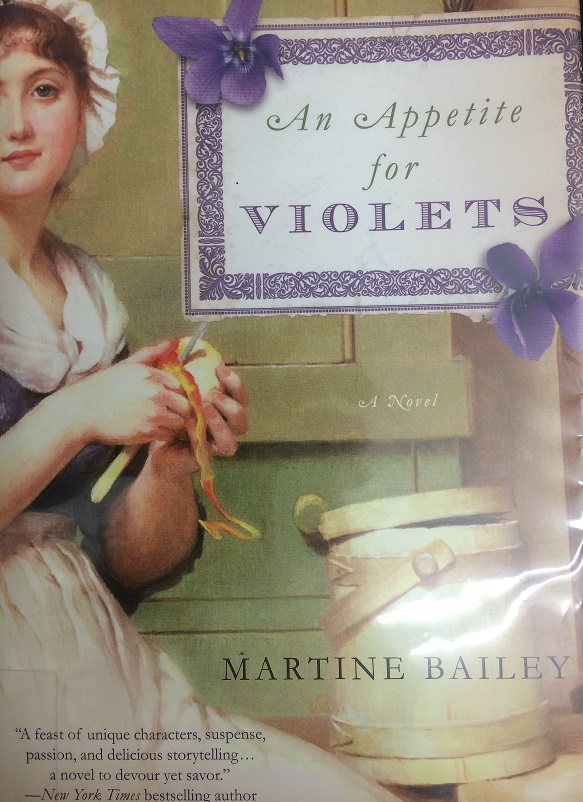 This title intrigued me. Since I love to cook and bake in addition to arranging flowers, it seemed like this book might satisfy my many cravings.
This title intrigued me. Since I love to cook and bake in addition to arranging flowers, it seemed like this book might satisfy my many cravings.
As Americans, we love stories about the underdog. Especially one who rises above adversity. For the young Englishwoman Biddy Leigh, life seems pretty normal. Since she is not royalty or wealthy, she works in one of the occupations available to poor, unmarried women: a cook for a wealthy manor.
And she doesn't mind it. Indeed, she revels in new receipts (recipes) given to her by the kindly Mrs. Garland who has grown too old to cook for the manor. But Biddy doesn't want to stay in her position if it means that she will never be able to marry. In fact, she is in love with Jem, a handsome, charming and lively ne'er-do-well. They plan to marry soon and fix up an old cottage and turn it into a pub.
But her mistress has other plans. With little notice, she shuts down the manor and commands Biddy and a few others to accompany her to her uncle's villa in Italy, by way of Paris. Biddy must say goodbye to Jem, promising to return within the year. Jem promises to wait.
But we suspect that just won't happen.
Along the way Biddy keeps a journal filled with receipts she finds or is given to special dishes. And of course, Paris is her culinary wonderland.As well, she is introduced to restaurants, which are novel at the time. They are places where patrons visit to heal themselves with rest and special food. Biddy is entranced.
But all is not what is seems, especially when they reach their Italian destination. When doing an errand for her mistress, Biddy's life changes forever.
Lively and quirky, this story held my curiosity to the very end. Not only are Bailey's characters luxuriant, each setting is equipped with evocative scenery. It seems like a simple rags-to-riches tale, but the surprising twists carry the reader off onto another trail, all the while tasting Biddy’s delicious treats. It makes me want to march into my kitchen and whip up a tasty taffety tart.
The Secret Chord
By Geraldine Brooks
Genre: Biblical Fiction
2 1/2 out of 4 stars
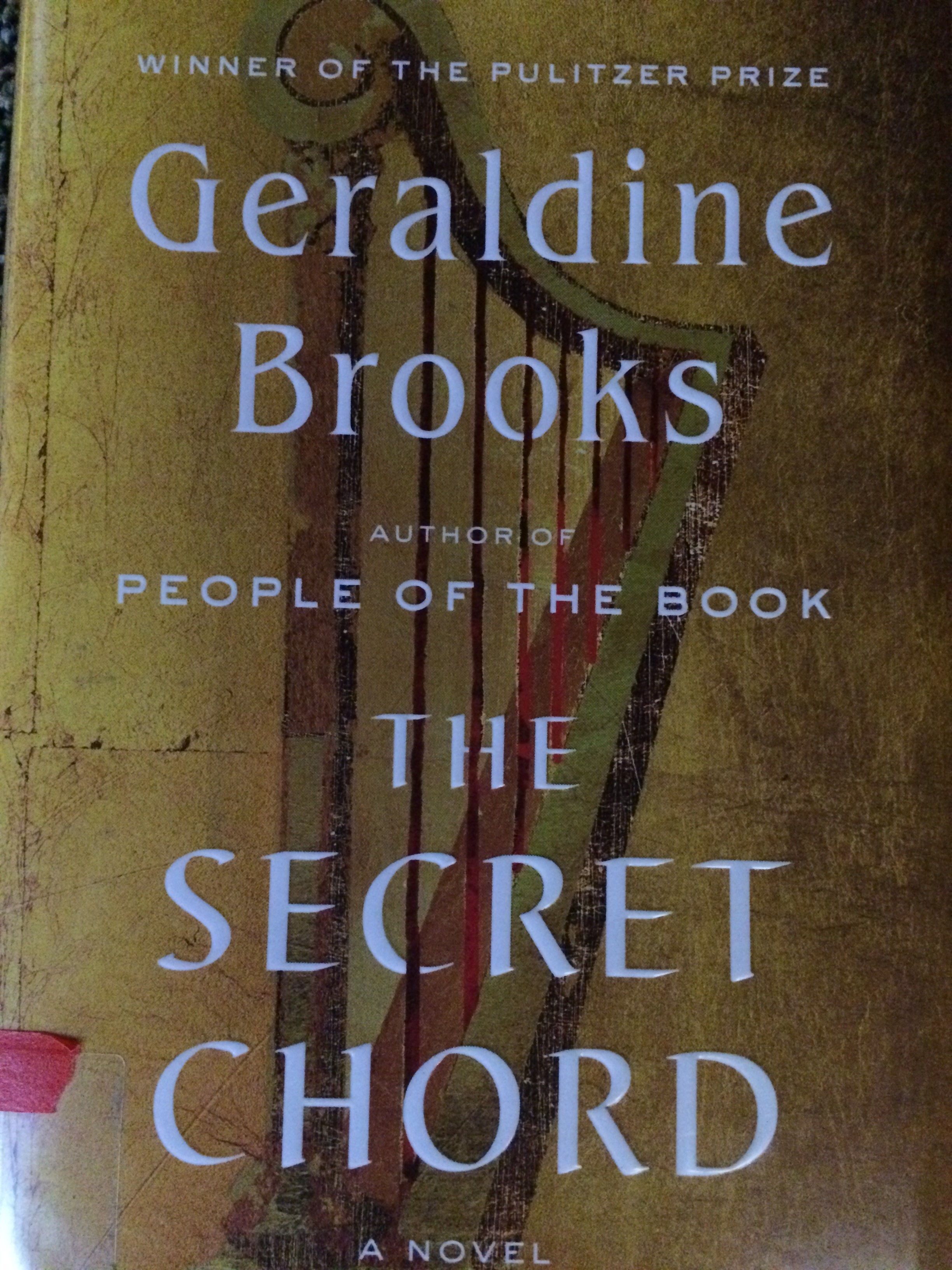
How many of us have experienced invisibility within our own families? This often happens to kids who happen to have many siblings. Geraldine Brooks imagines that such was the case with the renowned shepherd David who killed the giant Goliath when he was only 12. In this account of David's life we see a lonely boy of six sent out to live by himself in the hills tending sheep. All because of a father's indiscretion and a mother's deception. (They expected him to die out there.) To survive, he learned how to make do with limited provisions. He also learned how to defend himself against wild predators. So, since his life is in constant danger, he relies on his own wit and skills, as well as from the help of The Name (God) to stay alive.
Through this austerity his life is shaped. After he was successful killing the giant, and the amazed King Shaul (Saul) wants David to live at court, he is respectfully deferential to the new king. Actually David really loves him and his son Yonatan (Jonathon). But when David starts to gain popularity with the people of the kingdom with his many victories, the jealous king suddenly turns on him. He must use all of his early survival strategies to stay one step ahead of the king and his army. But this time he is not alone; he's a natural leader and has many who follow him, including the king's son Yonatan. His motto is "whatever it takes; what is necessary". Which means that sometimes his actions turn brutal.
In addition, since he was neglected as a child, he makes sure that he showers all the love that he didn't get from his own family onto his sons. As a result, they become brutish, cocky and entitled. Even David's daughter can't escape her brother, Amnon's incestuous and violent obsession of her, or David's clumsy and horrible handling of the insidious incident.
So, what we find in David is a brilliant musician, master, sometimes, ruthless strategist, natural leader, but having a fatal flaw of blindly loving without discernment. A character who is, perhaps, a victim of his family's neglect, which balloons out to encompass the tribes of Israel. That's not to say that he doesn't deserve some of the blame. But his story may be a lesson to us all: try not to let the mistakes of your parents define your whole life. Rise above and take care to recognize what the right path is, not just "whatever it takes" or "what is 'necessary'".
The Paris Key
By Juliet Blackwell
Genre: Realistic Fiction/ Historical Fiction
3 out of 4 stars

Genevieve has to escape. Her life is threatening to drown her. Her sweet mother died of debilitating cancer when she was in her teens; her steady father, one she could always count on, has recently passed away. And, though her handsome and successful husband has been sympathetic and consoling while she was dealing with her dad's death, she has found out that he is having an affair.
Wondering what her next step will be, she receives a notice that her lively ex-pat Uncle Dave who built his life in Paris after World War II, has also passed away. Previously, Genevieve's father sent her to Paris to live with Uncle Dave, his wife, Pasquale and their daughter Catherine for an extended visit to help her deal with her mother's death. In an effort to help distract Genevieve from her sorrow, her Uncle Dave taught her his craft of locksmithing. Now, since her cousin Catherine wants nothing to do with his business, she offers the business to Genevieve, along with free use of the Paris apartment.
So, she flies to Paris, seeking some sort of emotional respite.
What she finds is a jumble of intrigue surrounding Uncle Dave and Aunt Pasquale, her mother and her mysterious Parisian visit decades ago. She must come to terms with what's behind the door, once she turns the key.
I am enamored with anything Parisian, and this book did not disappoint me. Indeed, Blackwell's images of the quaint neighborhoods further fueled my resolve to return to the City of Lights. Even though it seems as though the tone would depress the reader, Blackwell offers an escape from the morose with practical solutions. We just have to be willing to use the key.
Wish You Well
By David Balducci
Genre: Historical Fiction
2 1/2 out of 4 stars
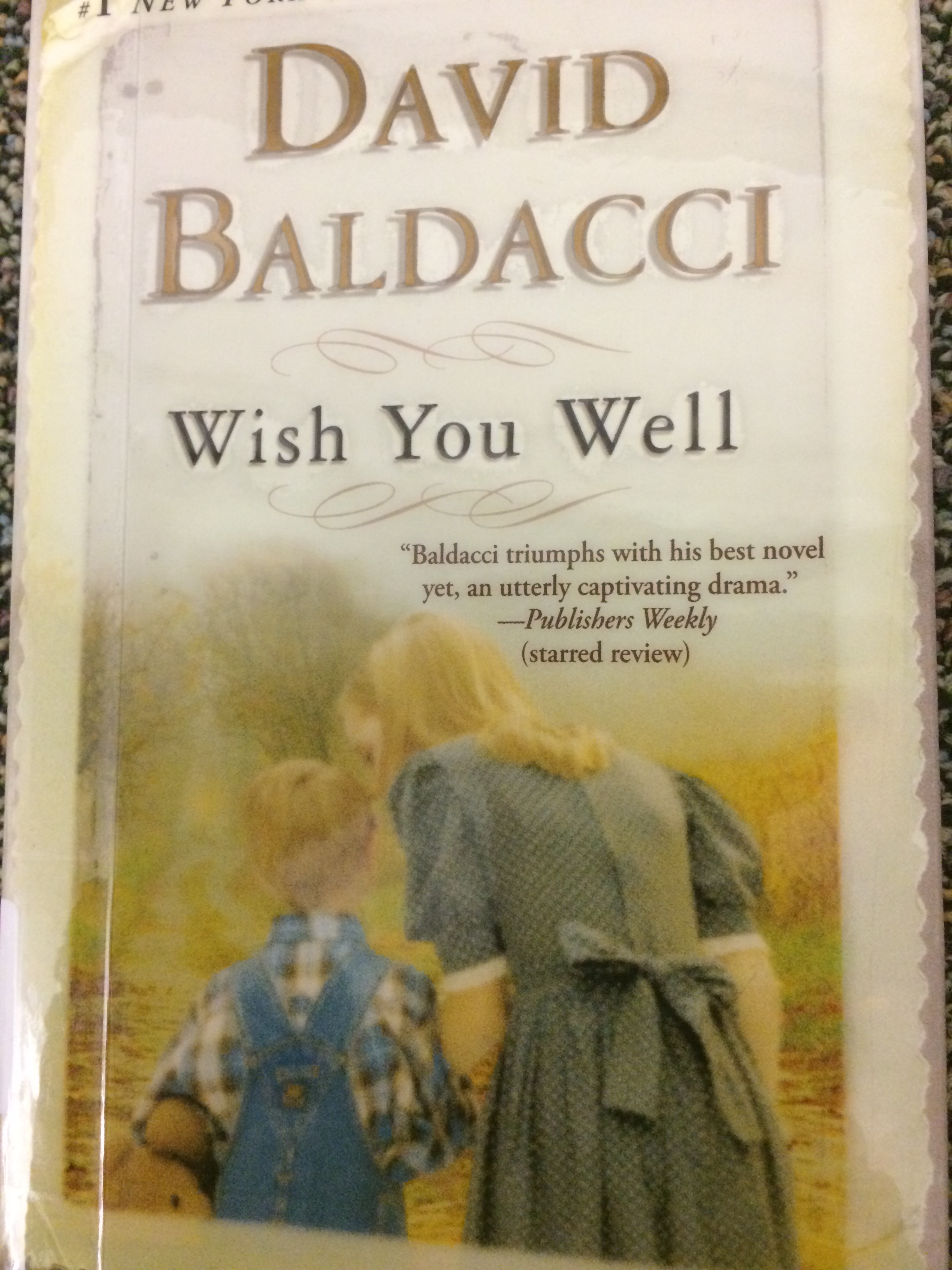 Money vs. quality of life. That seems to be the struggle with many Americans. But isn't having enough money equal a better quality of life? Jack Cardinal, a brilliant writer with many awards and accolades to show for his work, is worried. Even though his writing has garnered awards, it has not as yet been very lucrative. He is hell-bent to change this. Recently he has been offered a job in Hollywood as a screen writer, much to the chagrin of his loving wife, Amanda. She feels like they are doing just fine where they are in New York, with their two kids, Louisa Mae (Lou) and Oscar (Oz). Unfortunately, they chose to get in a heated argument about it while traveling home from a family outing and tragedy struck.
Money vs. quality of life. That seems to be the struggle with many Americans. But isn't having enough money equal a better quality of life? Jack Cardinal, a brilliant writer with many awards and accolades to show for his work, is worried. Even though his writing has garnered awards, it has not as yet been very lucrative. He is hell-bent to change this. Recently he has been offered a job in Hollywood as a screen writer, much to the chagrin of his loving wife, Amanda. She feels like they are doing just fine where they are in New York, with their two kids, Louisa Mae (Lou) and Oscar (Oz). Unfortunately, they chose to get in a heated argument about it while traveling home from a family outing and tragedy struck.
Not only did they not go to Hollywood, but they are forced to travel to the remote mountains of West Virginia to live with Jack's grandmother, Louisa, Lou's namesake.
Even though life on the farm is difficult, especially without indoor plumbing and electricity, the kids learn what is important in life: family, land, education and loyalty. I did think with my 2015 mindset that the kids accepted their new hardship pretty readily, but then, this story was set in the 1940s. Quite different from today.
With this in mind, Balducci paints a pastoral pasture of sweet, yet fierce family values in this story set in the post World War II era. His depiction of strong female characters I found refreshing and relateable. If you love extended imagery, you will love this rendition of life in the rural and primitive mountains. At times I found myself getting impatient and skipping ahead, but overall, the message is strong and sweet.
Go Set a Watchman
By Harper Lee
Genre: Historical Fiction
3 out of 4 stars
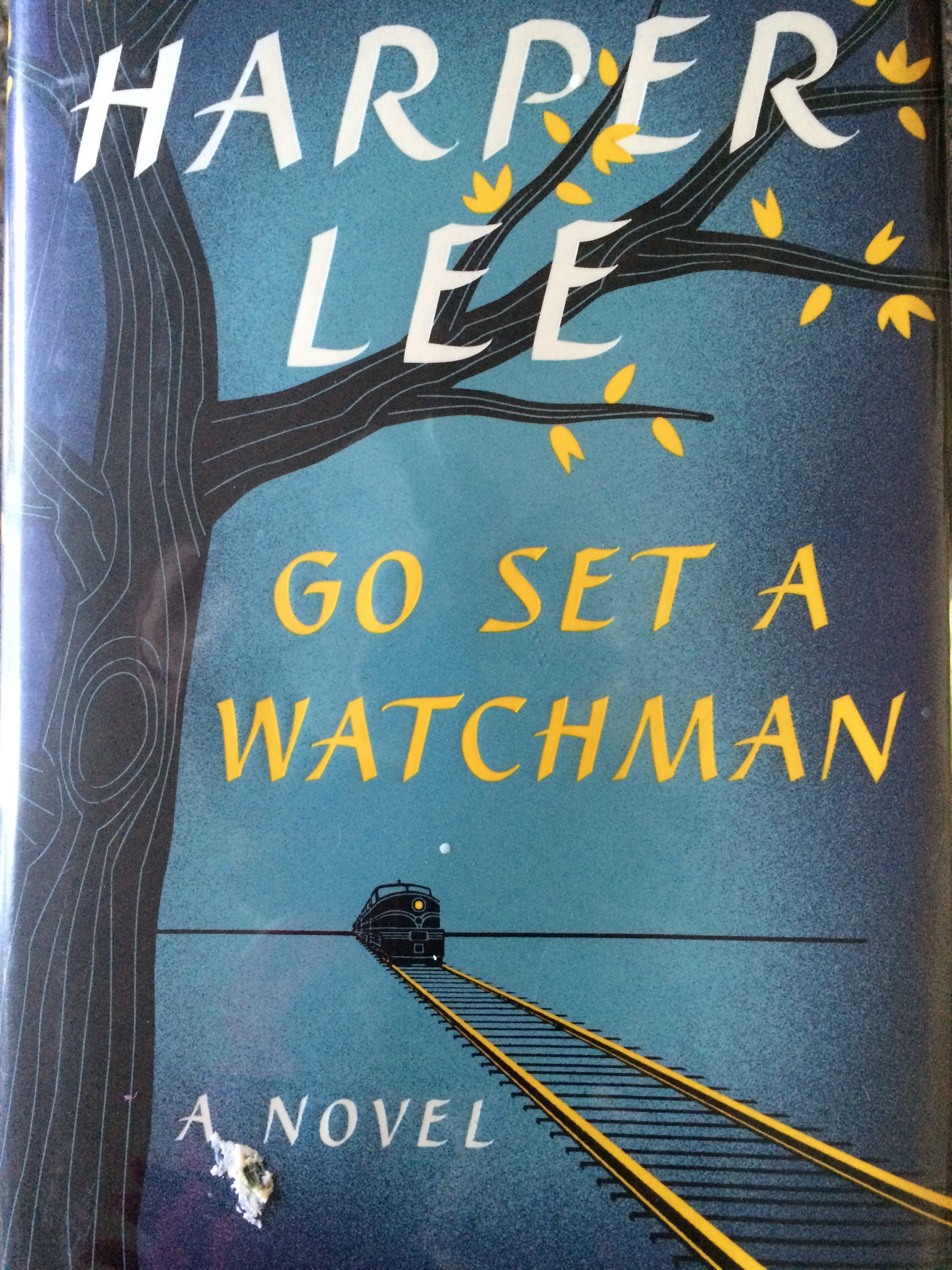 It was with trepidation that I delved into this sequel (or is it a prequel?) to Harper Lee's highly acclaimed novelTo Kill a Mockingbird. I had heard some of the hubbub: "You won't like Atticus' character in this novel"; "It was only Lee's first draft", "I'm not reading it", etc. However, without ruining this really good book for the rest of you, here is an inkling of what you will find.
It was with trepidation that I delved into this sequel (or is it a prequel?) to Harper Lee's highly acclaimed novelTo Kill a Mockingbird. I had heard some of the hubbub: "You won't like Atticus' character in this novel"; "It was only Lee's first draft", "I'm not reading it", etc. However, without ruining this really good book for the rest of you, here is an inkling of what you will find.
Jean Marie (Scout) Finch is the same. The same beloved, stick to her guns, suspicious of convention, defender of the downtrodden character who I came to identify with. The difference is, she now has a degree (it's not clear in what area) and lives in New York City. (The gritty city life seems exactly suited to the girl we knew and the woman she has become.)
We find her venturing "home" to Maycomb, Alabama for a two-week vacation, to relax and visit her now somewhat ailing father, Atticus. Her aunt, Alexandra, who has always vocally disapproved of the way Scout was raised, has moved in with Atticus to help him. So, even though she is sweet to help her brother, she is still a mostly sour character. She is still vocal, and while Scout tries to tolerate her disapproval, it is clear that it chafes.
A new character is introduced: Henry (Hank) Clinton who has taken on Atticus' law clerk/apprentice role. Hank came to live with Atticus, Jem and Scout when Scout and Hank were 13. There were problems at his home, so Atticus took him in. It seems as though Scout and Hank are continuing their brother/sister relationship, but it has morphed into something more. Over the years Scout and Hank have had a comfortable (if not somewhat strange) quasi long-term relationship. For some reason, not just Scout's declaration that she "want[s] to play until [she's] 30", we get the feeling that something's missing.
Jem and Calpurnia are both gone. In different ways. Both unexpected.
What we see in this book is that the more things seem the same, the more we realize that things are very different, very wrong. We are, after all, talking about Maycomb, Alabama where life has remained stagnant, stuck in the Jim Crow days. But we expect this. What we don't expect is that people who were solid in our minds have shifted. Or, perhaps, we weren't listening when we read the first book. Perhaps we saw what we wanted to see.
In any case, this book resonated with my own incredulous discovery about my dad as well as other men I have dated. And, like Scout, I wanted to run. It seems like I have been doing that my whole life, trying to find people who believe the way I believe. (Fortunately, my husband and I generally agree.) I do realize that I need to be kind to others who don't necessarily think the way I do. But, I draw the line when people are disrespectful or downright mean to others. And, I have found it difficult to associate with people whose reasons seem invalid. Indeed, I have found that the people we hang out with influence our thoughts and choices. At this point in my life I prefer to associate with people who are positive, open-minded and kind. Those qualities are increasingly difficult to find.
So, after reading this book, it seems that I have some learning to do. Perhaps someday I will become enlightened and find a better path full of compassion for all. This book has certainly helped steer me down the path of consideration.
Admittedly, this book does seem like a first draft, but that doesn't even matter. The poignant messages still shine through. Readers will be uncomfortable with some of the content, but sometimes we need to be uncomfortable, and weed through the brambles in order to grow. Because just like life, Lee reveals traits (sometimes distasteful) in characters that were there all along. In order to get the whole story, we just need to be willing to open the book.
Burning Bright
By Tracy Chevalier
Genre: Historical Fiction
3 out of 4 stars
 After studying William Blake's riveting poetry in college, I was intrigued by Tracy Chevalier's story of Blake's story and his neighbors. Once again, as with her novel, The Girl with the Pearl Earring, she imagines the story behind a famous work of art.
After studying William Blake's riveting poetry in college, I was intrigued by Tracy Chevalier's story of Blake's story and his neighbors. Once again, as with her novel, The Girl with the Pearl Earring, she imagines the story behind a famous work of art.
In this story, William Blake has more of a supporting role. Teenaged Jem Kellaway and his family have recently arrived in London from the country. His father, Thomas, a skilled chair craftsman, has moved most of his family to London to try to start a new life after a debilitating tragedy.
A street-smart teenaged Londoner, Maggie Butterfield, soon befriends Jem and his sister, Maisie, and teaches them how to survive in such a shocking environment. They give her friendly stability; she gives them worldly advice.
Jem's father immediately gains a commission from the Astley Circus owner, to provide him with high quality chairs. Philip Astley also sets the family up in a boarding house he owns, much to the consternation of the bleak woman who manages it. Even though she thinks that the Kellaways are beneath her, (since they come from the country), Astley insists that they occupy the top floor of the boarding house. It is from this central cog that all of the benign to murderous activities radiate.
What does this have to do with William Blake? Blake happens to live next door. His musings, drawings and writings are interspersed in London life, by way of his printing press. Of course, his sympathetic view of the French Revolution gets him in trouble with the organized supporters of the King. And his mysterious demeanor intrigues all he comes in contact with, especially the Kellaway kids and their friend, Maggie. He becomes an integral part in their lives and vice versa.
This seems like a realistic glimpse into life in London during Blake's time there. Chevalier crafts her characters to be believable, but somewhat predictable. You probably won't be burning for this bright novel, but it'll take you on an enjoyable journey.
The Shell Seekers
By Rosamunde Pilcher
Genre: Women's Fiction
3 out of 4 stars
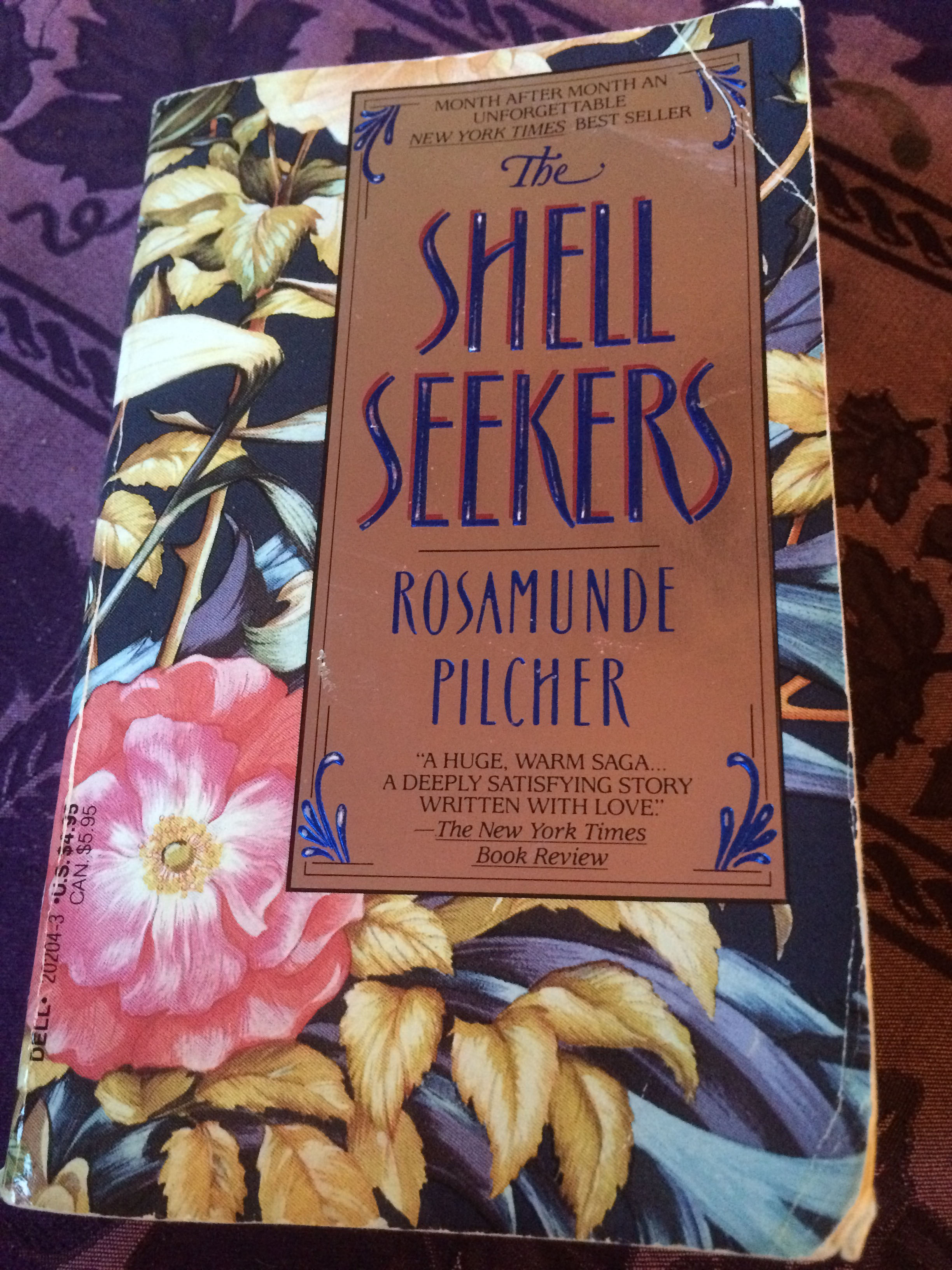 I knew I liked this book. The funny thing is, is that when I read this book for the second time, about 30 years after the first time, it seemed totally different.
I knew I liked this book. The funny thing is, is that when I read this book for the second time, about 30 years after the first time, it seemed totally different.
It seems as though 50-something Penelope Keeling is at a crossroads. She has had a medical "episode", prompting her kids to think about "doing something" with regards to her day-to-day care. But she feels she is just fine. It was nothing, she insisted. She even checked out of the hospital before her family knew it.
While phone calls and emails are flying back and forth among her grown children, they are trying to figure out what to do about Mum, including, but not limited to, the massive amount of work in her garden. So far she has lovingly taken care of it. Unbeknownst to them, she now realizes that she'll need help. At least for a little while. Just like she always does, she takes care of the "problem" of her big garden. Her new gardener, the mysterious Danus, has already started work.
Which makes some of her children uncomfortable once they found out. Who is this guy? Where did he come from? Mum needs to be more careful about who she lets into her world. On and on. As though Mum has lost her mind. We wonder whether they are really concerned, or if there is another agenda simmering.
It's funny how the familial dynamic changes once parents reach "a certain age". Especially if there is money involved. In this case, Penelope has inherited paintings and sketches from her artist father which have become very valuable. Two of her children start thinking in terms of the money they will inherit should something happen to their Mum. In fact, her oldest daughter dispatches the charming son to inform his mother about the value of the paintings, telling her that she might want to sell while they are "hot". (They think that they might reap a windfall if she sells.) Immediately, she reiterates that she has no interest in selling them. The other daughter, who is very successful, tells them to stop pestering her. Of course, they don't.
To her credit, Penelope gives each of her kids every chance to enhance their relationship with her. She invites each one of them to come with her on a vacation to Cornwall where she grew up. One by one, they decline, citing one excuse after another. She takes these rejections in stride, however, and we never get a sense that she's holding their decisions against them. She just moves on.
It was through a different lens (reading glasses, ha!) that I read this book for the second time. Having gone through family conflicts concerning our own parents, I was able to recognize the similar claws that emerge when people want what they want when dealing with inherited items.
It's sad, really.
It might be best to liquidate everything and give it charity. That way relationships won't be lost over money or things that really are not theirs.
Changeling
The Order of Darkness Trilogy Book One
By Philippa Gregory
Genre: Young Adult Historical Fiction
3 out of 4 stars
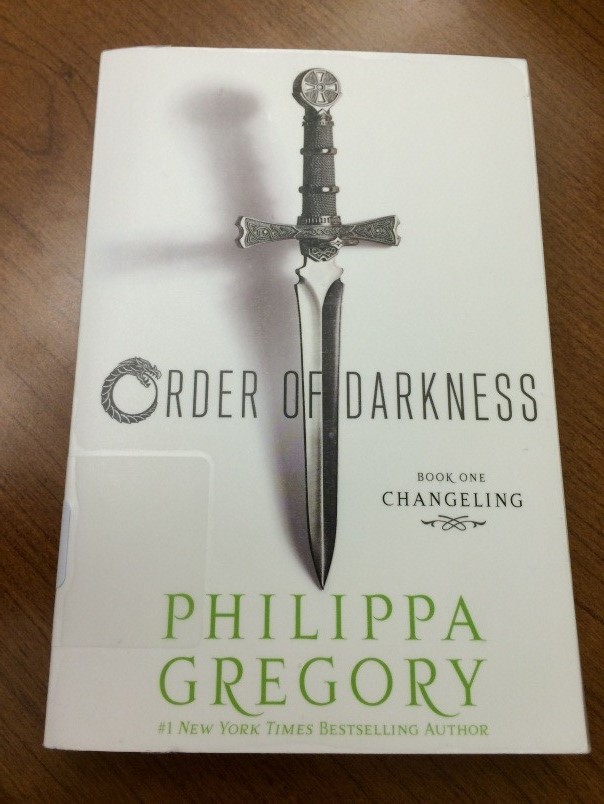 Some people have a "higher" calling and some people, because of their stations in life, are thrown into a life of service. Such was the case in the Middle Ages where boys who had no means of support were often compelled to serve a local priest or to join a monastery. Girls, also, were inserted into convents if they had no prospects for marriage. Convents or nunneries were also convenient places to stash sisters (even if they proved to be desirable) in order to virtually get rid of them.
Some people have a "higher" calling and some people, because of their stations in life, are thrown into a life of service. Such was the case in the Middle Ages where boys who had no means of support were often compelled to serve a local priest or to join a monastery. Girls, also, were inserted into convents if they had no prospects for marriage. Convents or nunneries were also convenient places to stash sisters (even if they proved to be desirable) in order to virtually get rid of them.
In such environment we find Luca, who was a remarkable boy. Too bad he was poor. Even in the era of satanic suspicion, Luca did not arouse suspicion; he just amazed people with his intelligence. Since he was poor, the logical place for such a gifted boy was to be offered as a servant in the Church. Soon it became clear to his master that he was gifted beyond his years. He was chosen to with travel the countryside as an Inquisitor, judging strange phenomena and deciding whether or not the activities were satanic.
His first assignment was to travel to an abbey to root out the cause of some strange occurrences. There he discovered a very young Lady Abbess who had recently been implanted into the abbey by her brother, the resident lord. Her father passed away a few months prior to this and, supposedly, his will stated that upon his death, she would enter a life of piety. This was a shock to her. Her father had never mentioned any such life for her. Regardless, since she was a woman, she had no rights, so she must "obey" her father's will. It never occurred to her that her brother may be lying.
Bloodied nuns with no reasonable explanation, screaming in the night, sleepwalking and trying to climb the abbey wall has cast the whole convent into a frenzy of mistrust and accusations. Indeed, even the Lady Abbess does not know the origin. Some say that she is the cause, since the episodes started soon after she was put in charge. But she is adamant. Her lands are dear to her and she would do nothing to put those in her care in jeopardy. Luca has been ordered to investigate these strange phenomena. It's up to him to keep an open mind (not a small task in that era) and scrutinize every claim. At stake is literally a burning stake if the Lady Abbess is convicted of witchcraft.
This tale is intricately woven with mystery, strong characters and sometimes surprising results. If you like a departure from the traditional history into "her"story, this first book of the Order of Darkness Trilogy, holds treasures worth contemplating.
The Heist
By Daniel Silva
Genre: Spy/Thriller
3 1/2 out of 4 stars
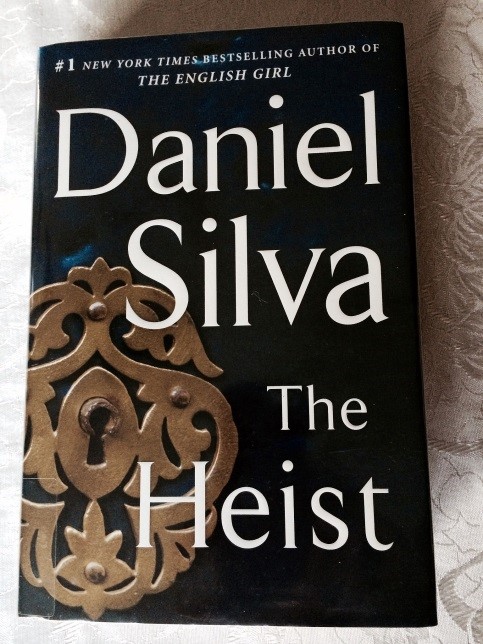 It seems that Gabriel Allon, the enigmatic art restorer/Israeli avenging angel, is soon to be happy. There has been so much tragedy in his life that he deserves this. While he loves his dear wife Chiara, who also works for the Office (the Israeli elite clandestine division), she is about to endow him with more joy. She is pregnant with twins: a boy and a girl. Happiness squared. In addition, he will soon become the director of the Office, the clandestine division of the Israeli government, and settle down in Jerusalem. Or will he?
It seems that Gabriel Allon, the enigmatic art restorer/Israeli avenging angel, is soon to be happy. There has been so much tragedy in his life that he deserves this. While he loves his dear wife Chiara, who also works for the Office (the Israeli elite clandestine division), she is about to endow him with more joy. She is pregnant with twins: a boy and a girl. Happiness squared. In addition, he will soon become the director of the Office, the clandestine division of the Israeli government, and settle down in Jerusalem. Or will he?
Once again his extensive talents are requested. This time the Italian Art Squad has asked him to recover a priceless stolen altar piece by Carravagio. To insure that he takes the job, they leverage him by threatening to expose his friend as the last person to see a murdered art broker dead. (The art broker was rumored to have acquired the stolen altar piece.) Allon knows that it would ruin his friend's career, so he takes the job.
Allon enlists his Israeli Office group of experts as well as some others who are on the fringe of society. What they suspect is that major art works are stolen for use as currency among terrorist factions. When funds are frozen by the U.N., terrorists use artwork to partially fund their operations. So, they need to find out who is behind all of this brokering of stolen goods, and who is buying it. And, of course they need to accomplish the "minor" matter of recovering the stolen art.
After the exhilarating galloping adventure all throughout Europe, what is left is for the reader to figure out is, what exactly is the heist? While there could be many answers to that question contained in the book, I think that, once again, Silva has stolen my attention and held it captive as I devoured another of his brilliant works of art. A truly enjoyable heist.
Manuscript Found in Accra
By Paulo Coehlo
Genre: Enlightenment
3 out of 4 stars
 Once in a while we need to stop and consider our motivations. Some of us go to church, others look within, and still others seek guidance from other sources. Coelho asks us to gently look at ourselves through this wise combination of spiritual and practical truths.
Once in a while we need to stop and consider our motivations. Some of us go to church, others look within, and still others seek guidance from other sources. Coelho asks us to gently look at ourselves through this wise combination of spiritual and practical truths.
Couched within a dangerous Holy Land setting with Crusaders ready to sack Jerusalem, this story features a mysterious man known as Copt who interprets an ancient manuscript that has just been discovered for those seeking the truth about various aspects of their lives. He speaks about such topics as: defeat, solitude, beauty, direction, work, luck, anxiety, and sex. Sometimes the people who gather are comforted; sometimes they are dismayed. But all are welcome to ask questions.
At first this story seemed to be a little preachy. And, I must confess that I got a little impatient with the style initially. But, when I relaxed and listened to the dialog, I began to sort out ideas that I could apply to my life and those that I had previously learned and had already applied. Some of the concepts I had learned in Sunday School; he sprinkles in Biblical verses in his discourse. Indeed, this narrative and its dialog are like what we read about Jesus' ministry in the first four books of the New Testament, also known as the Gospel. However, this account is just one occurrence of Q and A with the wise man.
If you are looking to reaffirm what you already hold as true or you are searching for wisdom, this collection of "previously hidden" gems may just comfort your soul.
The Signature of All Things
By Elizabeth Gilbert
Genre: Historical Fiction
3 out of 4 stars
 I must confess that, at this point, I have never read Eat, Pray, Love. The subject matter did not move me. However, this book, written by the same author as Eat, Pray, Love, spoke to the florist/horticulturist in me. I decided to give this (pretty thick!) story a whirl.
I must confess that, at this point, I have never read Eat, Pray, Love. The subject matter did not move me. However, this book, written by the same author as Eat, Pray, Love, spoke to the florist/horticulturist in me. I decided to give this (pretty thick!) story a whirl.
The story tells a familiar tale: poor boy makes his fortune; his daughter grows up in affluence, but is expected to be educated and somewhat industrious; Eventually, she has an epiphany.
However, Gilbert presents some twists on the type. Patriarch Henry Whitaker takes an educated and stable wife, not one who is beautiful. As a result, their daughter, Alma, is tall, large and ginger-haired, not at all physically attractive. Not the typical ingenue. But she is allowed, even encouraged, to participate in the lively cerebral discussions at the famed White Acre Estate (another form of Henry's last name) dinner parties, which occurred several times a week. The only guests who were invited were ones who could carry on sophisticated arguments, always pushing the envelope. Thus, she grew up always pushing herself to think beyond the norm.
The White Acre Estate and grounds are stunning. Since Henry Whitaker's business is botanical pharmaceuticals several gardens and herbariums sprout from the flowing acreage. His wife, Beatrix designed one of the gardens in the Euclidean style. He built White Acre Estate in Philadelphia to surpass the famous Kew Gardens in England. The Kew is where Henry and his father worked, until Henry sailed off to make his fortune growing cinchona trees for their bark. The bark was the only known cure for malaria and Henry decided that it would be means to his fortune.
Once this foundation is explained, we follow Alma and her musings and adventures. Her story blooms, gets aggressively pruned, and then flourishes once again. In her quest for understanding plants and their intricacies, she decides to focus on mosses. Since she spends so much time investigating the different types of mosses, some startling discoveries morph into a new theory that she decides to keep to herself.
We long for her, praise her, and weep for her. While at times Alma can be frustrating, isn't that true of all of us? Indeed, the "signature" of her life is comforting and exasperating, yet at times very familiar.
Tigers in Red Weather
By Liza Klaussmann
Genre: Historical Fiction
3 out of 4 stars
 Sweaty and sultry, Nick beguiles Hughes transforming their 1920s Cape Cod existence into a rapacious rumba. Powerless to break free, Hughes is hopelessly tied to her magnetism. He loves Nick. But does Nick love Hughes?
Sweaty and sultry, Nick beguiles Hughes transforming their 1920s Cape Cod existence into a rapacious rumba. Powerless to break free, Hughes is hopelessly tied to her magnetism. He loves Nick. But does Nick love Hughes?
How can she when she doesn't even know what she wants? She feels like she's ahead of her time, that all the other housewives are backward and old-fashioned. At any moment, on a whim, she will shock the neighbors by traipsing around in her strapless bathing suit. There is a restless storm surrounding Nick. She knows what is proper; after all she comes from Cambridge stock. Her family owns a "cottage" on Martha's Vineyard, called the "Tiger House". (This is due to the fact that her grandfather had gone on safari and killed a tiger. Its skin, including the head, was made into a rug, and resides in the cottage.) So, she is one of the "entitled elite". So much so that I had trouble tuning in to her "First World" problems in the first half of the book.
However, this book reminded me of The Great Gatsby, by F. Scott Fitzgerald, so I floated along, absorbing the "frothy plum" prose reminiscent of Daisy's East Egg.
As though she somehow realizes that her life is similar to Gatsby's Daisy, Nick names her daughter Daisy. Fresh as. That's how I think of Nick and Hughes' Daisy. Daisy is a somewhat cliche privileged teenager, since she spends her days on the tennis courts. But that's how all the characters seem: the husband who works at a financial brokerage firm, the bored housewife, the darling daughter, the damaged sister, the strange cousin. But for some reason, the story and the way it's told compels the reader to press on. In fact, it bothered me so much that even though it was late at night, and I had a chapter to go, I had to finish it. Despite the fact I knew that I was running into the fire, I had to know the resolution, whatever it was.
It wasn't quite predictable. That's what I like. And Daisy remained fresh. Whew.
The Angel's Game
By Carlos Ruiz Zafon
Genre: Magical Realism
3 out of 4 stars
 I have been called "practical". Whereas when that phrase was said, it was said with derision when I grew up, Nowadays, I embrace it. However, even though my feet seem to be rooted in what is real, I like to imagine alternative ways of looking at the established series of beliefs and what is accepted. This book suggests that other forces may swirl around us.
Writers are always looking to tease out the "great novel" or other projects that lie dormant right below their consciousness. In this book, the main character, David Martin is a novice writer for a newspaper. His talent has caught the eyes of some predator publishers who bind him to write a series of stories for years. Since he did not have any other prospects and wanted to get paid to pursue his passion, he agreed. Even though he knew that this project was not equal to his talent, he was stuck. He had just decided to abandon the debilitating schedule of writing, the publishers and take the consequences, when he got an invitation to a meeting with a publisher from Paris.
I have been called "practical". Whereas when that phrase was said, it was said with derision when I grew up, Nowadays, I embrace it. However, even though my feet seem to be rooted in what is real, I like to imagine alternative ways of looking at the established series of beliefs and what is accepted. This book suggests that other forces may swirl around us.
Writers are always looking to tease out the "great novel" or other projects that lie dormant right below their consciousness. In this book, the main character, David Martin is a novice writer for a newspaper. His talent has caught the eyes of some predator publishers who bind him to write a series of stories for years. Since he did not have any other prospects and wanted to get paid to pursue his passion, he agreed. Even though he knew that this project was not equal to his talent, he was stuck. He had just decided to abandon the debilitating schedule of writing, the publishers and take the consequences, when he got an invitation to a meeting with a publisher from Paris.
Not one to shrink back from the unknown, he decided to travel across town to a shadowy venue to satisfy his curiosity, if nothing else. Don Corelli, the Parisian publisher, told Martin that he had admired his writing and wanted to offer him a new project. Martin's contract with the sleazy publishers would not be a problem; he would take care of them. And then Corelli drops his bombshell: for the unbelievably ridiculous sum of one hundred thousand francs, Martin would create a new religion, complete with doctrine, rules and all the trappings to go along with it. Corelli would expect updates in the form of written pages every two weeks or so. Martin is tempted, but actually admits to Corelli that he is dying, and it would not be right to take on the project.
"Do you want to live? asks Corelli.
Realizing that he has nothing to lose, ironically Martin takes a leap of faith, trusting Corelli to save him. The problem is that in accepting this proposal, he plunges into an abyss to which he can never escape.
The Book of Names
By Jill Gregory and Karen Tintori
Genre: Apocalyptic and Kabbalistic
3 out of 4 stars
 We want to believe that our normal, everyday lives will continue in the same manner that we're used to. But what's going on with all of the frequent natural disasters exploding all over the globe? Is there a sinister group responsible for them? Should we worry?
We want to believe that our normal, everyday lives will continue in the same manner that we're used to. But what's going on with all of the frequent natural disasters exploding all over the globe? Is there a sinister group responsible for them? Should we worry?
Political Science Professor David Shepard keeps having horrific headaches. Along with the headaches, names keep popping up in his mind, over and over. This started happening when he was a teenager, after he and his friends fell off a roof.
They were all visiting friends of their parents when his friend Crispin had been waggling a strange blue agate, daring him to scale the snow-covered three story gabled house. Abby, their friend, followed, but quickly lost her footing. Both Crispin and David tried to save her, and all three fell off. Abby got a broken arm; Crispin fell into a coma and David actually died, but was revived. After his recovery, he went back to the spot to retrieve the agate. He wanted something to remind himself to never succumb to impulsiveness.
After he recovered, he started seeing and hearing random names. First, he would experience debilitating headaches. In order to alleviate his pain, and to try to make sense of the strange phenomenon, he decided to write all of the names down in a journal. He didn't know why; he just needed to do something with them.
Strangely he noticed that many of the people whose names matched those in his journal started dying. And not of natural causes.
This was driving him nuts. He had to tell someone. So, he decided to discuss it with Dillon, his trusted friend. Dillon helped him discover that the lettering on the strange blue agate was Hebrew. This was morphing into something that was beyond their experience. Dillon felt that David should consult with a renowned rabbi with extensive knowledge of the Kabbalah, the Jewish mystical studies. Even though he couldn't fathom why such an expert would be relevant, he agreed.
Rabbi ben Moshe certainly was interested in both the agate and David's journal. The agate was part of an ancient set connected to the names. The names and the order in which they had been revealed to David held a code for which all human life was held in a balance. Once he told David of the significance, it set motion a harrowing race to save the world from the evil Gnoseos sect, hell-bent to destroy the world as we know it.
This edge-of-your-seat thriller gives us glimpses into the mystical world of the Kabbalah. Much of the material may seem far-fetched, but it's fun to stretch our minds and consider other possibilities.
The Time Keeper
By Mitch Albom
Genre: Fable
3 out of 4 stars
 Time is both a gift and a curse. Every moment we get to spend with loved ones, at least when we're not fighting, we treasure. However, when we are rushing around, trying to get things done, time becomes our enemy; we feel like we will never have enough of it. So, when did we become aware of it?
Time is both a gift and a curse. Every moment we get to spend with loved ones, at least when we're not fighting, we treasure. However, when we are rushing around, trying to get things done, time becomes our enemy; we feel like we will never have enough of it. So, when did we become aware of it?
Dor has decided to measure everything. Numbers fill him with satisfaction. Not only that, no one has yet quantified the phenomena of the sunrise and sunset. He becomes obsessed with the idea of measuring time. Even to the point that he ignores his sweetest love. Suddenly, he discovers that the time he has with her has run out. He has forgotton the true purpose of time. God has decided to punish him for trying to overstep his bounds. For his penance, he is flung into a pit and he must endure the countless pleas for more time for centuries. Two of the desperate pleas seem to stick with him. Since he has initiated the measurement of time, his persona has morphed into the figure we know as Father Time.
Once he has served his time and is released, he is compelled to rebuild his existence in a new, modern world. He no longer cares for measuring time; in fact, he hates it. Ironically, he finds employment at an antique clock and watch shop. Remember the two pleas? Circumstances lead these two individuals to the shop and his unique services. But how must he proceed in order to help them with their dire situations?
As Father Time bears down on us all, the trend is to do as much as we can, to "make the most out of life". But how do we know that we're doing is enough? How do we know if we're doing anything correctly? I believe the trick is to balance the time we have. Strive to do what you want to do, setting goals in order to make that happen. Even if we think we will never have enough time, we need to relax and take it moment by moment. Time will surely pass; the key is to grab the happiness that lies within each instant. Because Father Time will surely catch up to all of us.
Written in My Own Heart's Blood
By Diana Gabaldon
Genre: Time Travel/Historical Fiction
3 1/2 out of 4 stars
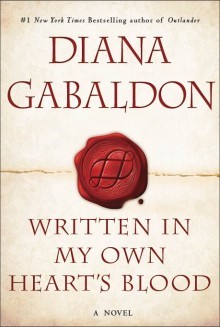
Another winner from the Outlander continuing series.
Jamie Fraser is not dead! He lands in Revolutionary Philadelphia, looking for his wife Claire, only to discover that his friend, Lord John Grey has married Claire! What?! Before he can get too crazy, he is told that Lord John married Claire for her own protection. Since the British Loyalists have occupied the city, and Claire is a Rebel, (and Jamie was lost at sea), Claire numbingly agreed to Lord John's proposal. But now Jamie means to put everything back in order.
What follows are many Fraser and MacKenzie dangerous adventures on the battleground, in the cities and villages, both in the Colonies and in Scotland. Roger and Brianna (Jamie and Claire's daughter) MacKenzie have returned to the present day, through the standing stones, because they need modern-day medical care for their daughter. The standing stones of Craig na Dun, Scotland still swirl with electric and sonic power for those who can "hear" them.
But now their son, Jem is missing. Roger and Brianna believe that Jem has been kidnapped and taken through the stones because Jem is privy to a very lucrative secret. Roger decides to make the treacherous time travel trip through the stones back to the 1700s. What he discovers shocks him to the core.
With the growing character list, Gabaldon shifts from story-to-story, trying to weave all of them together. She does an admirable job, given the fact that her last (and seventh in the series) book with these characters, An Echo in the Bone, was published in 2009. It becomes somewhat cumbersome to relive some of the recollections that she offers, but it's also somewhat difficult to reach back and try to recall some major details that were read five years ago.
Still, the vivid characterization and sensory imagery combine to generate a platform for this lively story mostly situated during our fight for independence. I could go on and on giving hints about the exploits. Suffice it to say, that if you like adventure, you will delight in the myriad of twists and turns that Gabaldon is famous for.
The Season of Second Chances
By Diane Meier
Genre: Women's Fiction/Chick Lit
3 out of 4 stars
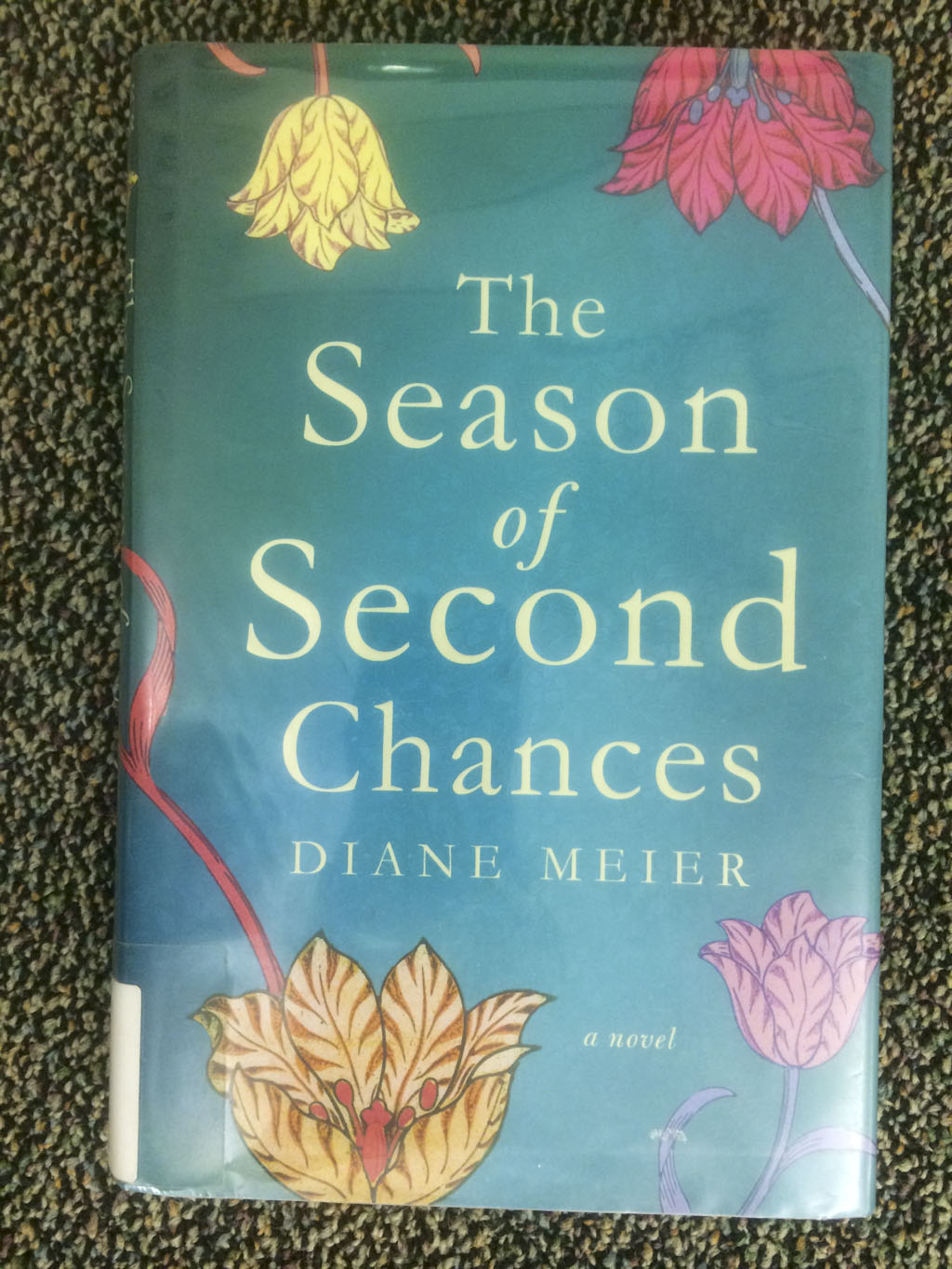
Usually my preference for pleasure reading is the wild roller-coasters of adventure and spy novels. But with the changing seasons, I thought I'd switch it up and give this "Chick Lit" a chance.
To my surprise the flowing nature of a "change of life" drew me in and held me until the last page.
Professor Joy Harkness has been chosen to join several renowned teachers to develop a new way of teaching across curricula. Upon accepting, she must leave her very New York existence as a professor of literature at Columbia University and join the group at Amherst College in Massachusetts. Her challenge is to acclimate herself to the friendly small town life after remaining somewhat anonymous among the millions in New York. All while tackling a whole house renovation of an 19th century Victorian house.
She surprised herself when she bought this beautiful, but run-down house. For some reason, it called to her. She thought that she would have trouble trying to find a contractor to do the renovations, but everyone she met told her that she needed Teddy Hennessey. It turns out that Teddy was the local genius with home repair and design. Educated in hard work and experienced in many trades, he took on the large project almost before Joy knew it. His price was much less than she had figured. When he declared that he would be back on Monday to start the work, she was astonished. She was used to mulling things over and service professionals who took their time in responding. For practical Teddy it just made sense. He had finished his previous job and was ready to move on to her project.
What follows for Joy was a rhythm of settling into teaching classes and choosing paint colors and design elements. Often, she shared a quick, microwavable dinner with Teddy as they both work into the night. To her amazement, she found herself morphing and actually enjoying aspects of her life. Her vivacious co-worker, Josie, flings Joy into a network of friends, not listening to any of Joy's protestations or reluctance. Little by little, Joy's circle of friends grows, in part due to tragedy. After some soul-searching, she realized that she actually liked the interactions and challenges that come with connecting and sharing responsibilities. She is changing, coming out of her very sturdy shell. But, with every change, there arises some difficult choices.
Meier raises some poignant issues that we all ask about ourselves. At first Joy's name is ironic, since she seemingly has no joy in her life. In addition, she tries to keep everyone at bay, preferring to rely on herself for happiness. But, as most of us find out eventually, she discovers that she needs human connections to enrich her life. And, like Joy, hopefully we will all take a chance and hearken to the ringing of sweet, personal relationships to help us navigate the seasons of change.
The Physician by Noah Gordon
Genre: Historical Fiction
3 1/2 out of 4 stars
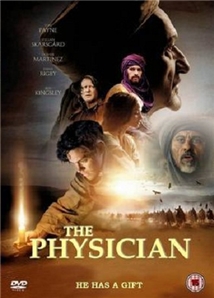 My wide-eyed fourth grade self sat in wonder as Mrs. Olson told our class that we knew more about medicine than a physician in 1900. What? It was hard to believe given the respect I had always given our family doctor. Imagine the dicey journey that people have taken to try to discover and treat society's ills.
My wide-eyed fourth grade self sat in wonder as Mrs. Olson told our class that we knew more about medicine than a physician in 1900. What? It was hard to believe given the respect I had always given our family doctor. Imagine the dicey journey that people have taken to try to discover and treat society's ills.
OK, just throw out all that foul smelling offal onto the street. Why not? You don't want it in the house. Never mind that people had to walk around it or haplessly get showered with it. In 1021 London, that was the norm. Conditions were nasty and anything new was under suspicion. Rob J. Cole has shouldered the responsibility of his many brothers and sister despite the fact that he is only nine. Things get worse when his mom dies in childbirth and his dad does shortly thereafter. The kids are scattered to various homes and no one wants Rob J. He's too young to work like a man and old enough to almost eat like one. A liability. So, Rob J. is sent to an orphanage.
Soon, though, a barber-surgeon takes him on as an apprentice. Rob J's job is to learn how to juggle and various other tricks to keep audiences entertained while the barber-surgeon sees patients and tries to sell his particular healing potion. Since medical treatment is feared, all healers run the risk of being accused of witchery. But Rob J. has a gift. Just by holding someone's hands, he can tell whether he or she will soon die. The more he learns, the more he realizes he doesn't know.
When the barber-surgeon suddenly dies, Rob J. decides to pursue his dream to be educated by the best physician known. The problem is that Rob J. lives in Britain and must travel to Persia where this maestro heads a medical school. There he must try to figure out a way to study with the renowned doctor. It seems like an impossible task, given his circumstance. But this is his passion. He risks everything in order to reach his goal.
Exciting with a new perspective, Gordon grabs the reader with characters who sizzle. At times the story can drag with all of the descriptions, but most of the time, we are right there with Rob J. cheering, crying, holding our breaths and exhaling with relief. And this is just the first book of three.
The Postmistress by Sarah Blake
Genre: Historical Fiction
3 1/2 out of 4 stars
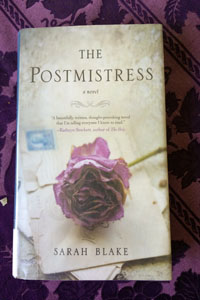 Once in a while a book will make me gasp. Sometimes just once or twice. But this book had me gasping until I couldn't, yet had to put it down, in order to calm myself: for the turn of a phrase, for love, for mystery, for horror.
Once in a while a book will make me gasp. Sometimes just once or twice. But this book had me gasping until I couldn't, yet had to put it down, in order to calm myself: for the turn of a phrase, for love, for mystery, for horror.
It all sounds prim, doesn't it? Postmistress. Sort of an antiquated term. And yet, Iris James adamantly declares that there is no gender distinction for her job; she is simply the postmaster of a tiny town of Franklin near Land's End on Cape Cod. She is all business, a follower of rules. Making sure that she keeps order in the uncertain years of 1940 and 1941. So now you have it. This tale unfurls from the horror that is WWII.
Every small town has its demons. For Will Fitch, the resident doctor in Franklin, he has desperately tried to chase the memories of what the Great Depression did to his father who owned a bank that failed. He has tried to erase the "no-good, incompetent, alcoholic" Fitch reputation from the minds of the Franklin residents with his gentle care. But the most difficult mind to change is his own. Tragedy strikes; he gives up and decides to abandon his new wife and flee to London "because they need his help". Ironically, by leaving, he thinks it will heal him. However, he is doing exactly what his father did: escaping life and languishing in self-doubt.
In a London bomb shelter he meets the famous voice of the war, CBS radio reporter Frankie Bard. She tells the stories of what she has experienced, trying to give America a glimpse of what is happening. Since radio is the most exciting medium of the time, most Americans with radios know her name. Will marvels that the war has brought them together, but does not think it was Fate or any divine intervention. They have both seen enough destruction that they no longer hold on to any hope of religious ideology. He asks her about "the rest of the story", making her uncomfortable about the way she's reporting. She asks him why he left his "beloved" wife if he didn't have to, causing him to re-examine his motives. And just when you think that they will be fast friends, another gasp.
Suddenly, Frankie lands a dream assignment: an extremely dangerous trip traveling down to the depths of Germany to "post" stories of refugees. She records snippets of their lives: their names, where they've come from, where they are going. Again, she does not have enough time to record "the rest of the story". Indeed, sometimes the people disappear before she can develop a story. So, she tries to record the names of as many as she can. Just a few tweets.
But there is only so much a person can take. Another gasp.
Gasping, she travels to Cape Cod, curious to meet Will's "beloved" wife. Many secrets swirl as she gets caught up in small town life. What's difficult, as we all know, is what to "post" and what to leave out.
Sometimes the whole story doesn't need to be told.
The Forgotten Garden by Kate Morton
Genre: Historical Fiction
3 out of 4 stars

In bustling Brisbane, Australia, in 1913, Hugh is port master, making sure all those who arrived matched what their papers indicated. On this particular day, sitting on some unclaimed luggage, he sees a tiny girl, about four years of age. She is waiting patiently after debarking from a ship from England, lifting her head in anticipation at each passerby. After realizing no one is coming to claim her, Hugh takes her home with him. He tries to find her parents or guardian--to no avail. Little Nellie becomes part of his family.
Fast forward to Nell's 18th birthday. Ever since his wife died, Hugh has felt that he should tell Nell that she was adopted and the circumstance surrounding it. His wife was always against telling Nell. But, Hugh feels strongly that Nell needs to know. When he reveals the story, Nell is stunned. What follows is a lifetime of wild confusion, wondering where she came from, who her parents were and why they put her on a ship across the ocean all by herself.
After this revelation we travel to England and back to Australia with Nell and her granddaughter Cassandra as they struggle to find the answers to their ancestry. (Nell never connected with her daughter, Lesley, probably due to her disconnect after finding out that she was adopted. In turn, Lesley leaves her own daughter Cassandra in Nell's care when Cassandra was in her teens.)
Nell discovered a rare book of fairy tales, in the original little suitcase she carried off the ship so long ago, authored by the famous Eliza Makepeace. In her dim memory she recalls waiting for an "Authoress" once she was on the ship. Intrigued, she feels like she must pursue this clue.
Along the way, Nell, and later Cassandra, are drawn to a particular walled garden on the (newly discovered) family estate in England that that seems to charm them. They aren't sure why, but for some reason the wall has been added, leading to another mystery.
The chronicles of three generations and their fight for identity reveals possible challenges that many of us face as we try to deal with family relationships. Morton's vivid and poignant imagery and realistic, indeed, likable characters bloom with possibilities. Thus, the reader connects with the action and willingly and eagerly travels with these approachable characters to discover the secrets of The Forgotten Garden.
The Paris Wife by Paula McLain
Genre: Historical Fiction (based on a true story)
3 out of 4 stars
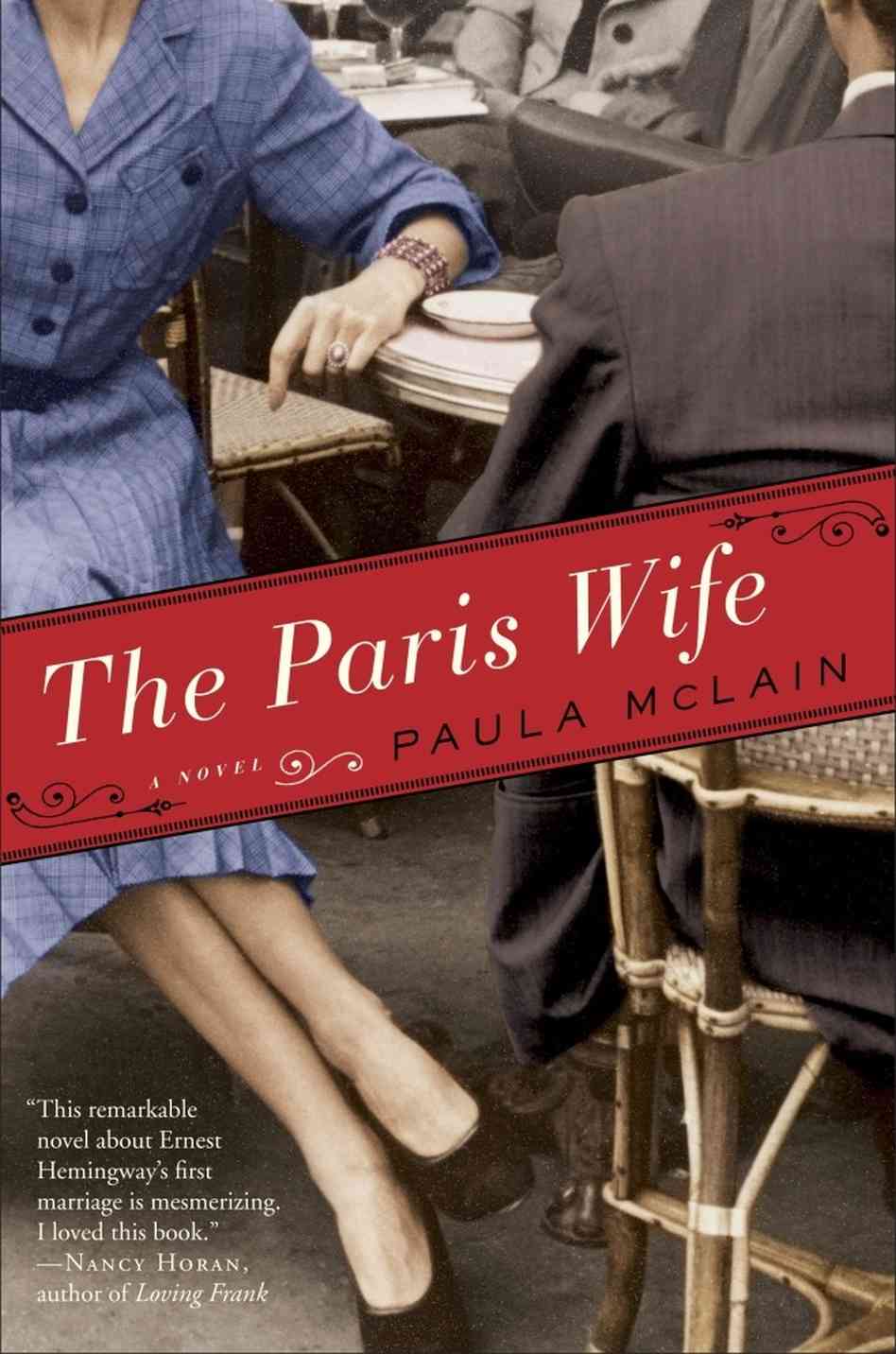
I was worried about this book before I even opened it. I heard that it was about Ernest Hemingway's first wife. But, like a tragic hero, I decided to venture on anyway, despite my prior knowledge of Hemingway and my misgivings. I wanted to peek into Hemingway's start.
It's been said that Hemingway and his compadres who were in WWI, indeed the whole generation, have been called "The Lost Generation". America lost so many young men in that war. Those who survived lost their innocence while defending their nation. They lost their buddies during the many bombardments hurled at them. And, even if they survived, after they came home, nothing seemed sure and true. So, they lost their ability or desire to adhere to convention or even the law. As a result, the "Roaring Twenties", with all of its excess and fluff allowed them to float through the haze of (illegal) booze and smoke, not caring about tomorrow. Because the war had taught them that tomorrow could be taken away in an instant.
Into this fragile world entered Hadley Richardson, who decided to accept an invitation to visit her friend Kate in Chicago. At a party, Kate introduced Hadley to an extremely cool guy, Kate's friend named Ernest Hemingway. The spark was instant. The two were inseparable from the start. Affectionately, he nicknamed her Hash and she called him Hem. Kate warned Hadley that Hemingway was volatile, but with his constant attention, it became difficult to heed Kate's warning. Even when she returned home to St. Louis, Hadley received letters of affection from Hem daily. Indeed, she was feeling delicious and did not want it to end.
Fortunately, she happened to inherit money, just as their relationship was burgeoning, so Hemingway decided to move their party to Paris, where the art scene was beginning to explode. He felt that he could hone his craft of writing and gain valuable contacts in the vibrant Parisian arena. Hash readily agreed.
What follows is the disjointed dance where Hem and Hash try desperately to cling to their modern vows. Hash knows that in her heart that her hold on Hem is tenuous; after all she was warned. However, she has the storied tragic flaw of hubris, and thinks that her unconditional love of Hem will sustain them.
This adventure is somewhat foreign to our "Western" way of thinking, but it offers a poignant view into the tortured state of mind of this "Lost Generation." And, even though I knew some of Hemingway's biography, I was unable to tear myself away from this story. Unfortunately, my worries came true.
Garlic and Sapphires by Ruth Reichl
Genre: Non-fiction
3 out of 4 stars
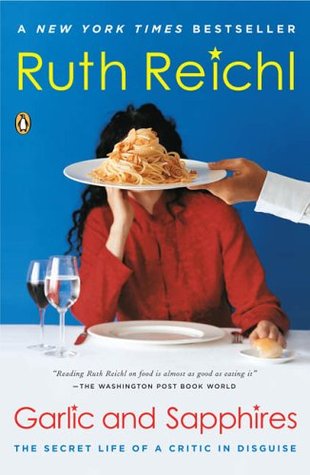
After my kids left for college, I made a conscious effort to delve into the world of sensory cooking. There was now no opposition. I am lucky: my sweet husband loves food. So, I decided to make everything taste as delicious as it could.
In that regard, I am somewhat of a food critic. I assess each morsel and decide whether I want to continue, or what I can change to make the dish better. So, I was delighted to hear about the antics of this New York Times food critic from my sweet sister, Evy.
Ruth Reichl regales her foray into the dicey world of tasting and reviewing New York City's culinary scene. She learns right away that some restaurants have already done their homework on her: they know when she will start work, and most of all, they know what she looks like. How will she get an accurate account of any restaurant's operation and offerings if they know she's coming?
She decides to transform herself into a myriad of characters, disguising herself in order to get review the restaurants in anonymity, thus, writing a trustworthy review. She does go as herself on occasion, and reveals the differences in service, presentation and overall appeal, if there are any.
All of her masquerading results in a funny, poignant and useful account of eating out in the New York City area. Since she comes from a cooking background, she even weaves some favorite recipes of hers into the story. There are several that I would like to try.
One of the great aspects about Reichl's writing is that it feels authentic. When you feel like you're finished reading about her experiences, she's getting bored with her own life as a critic. Quickly, she lifts you (and herself!) out of the doldrums and gives you a new reason to keep reading as she heads out to embark upon a new adventure.
My sister was right; it was fun to follow Reichl as she worked her magic.
**This is a cool idea:
The members of my sister's book club even dressed up and wore wigs to their monthly gathering as they discussed this book. Some of them even made some of the recipes found in the book to share. She said that it was entertaining that the members reveled in the spirit of the book. Ruth Reichl would be proud.
Eve by Elissa Elliott
Genre: Biblical Fiction
3 out of 4 stars

Wouldn't it be delicious to live in paradise and have every need taken care of? To revel in nature's perfection without fear of disease or danger seems like the ultimate incentive for a carefree life.
Except that the meaning of the word "paradise" in Eastern Old Iranian language means "walled enclosure". (Somehow that sinister meaning was left out of my religious upbringing.)
We're talking about the infamous lives of the Biblical Adam and Eve. In addition to living in a gorgeous garden with everything at their disposal came the mandate that Elohim (God), their creator (a.k.a father) sent down that these residents of the paradise He created could do anything and eat anything but the fruit from the Tree of the Knowledge of Good and Evil. "And, you know what, guys? Don't even touch the tree."
No matter how gilded a cage is, it's still a cage.
Swirling into this "perfect paradise", slithered doubt. And, isn't it just like human nature? Even though we seem to have "everything", we want more. And, many times we blame it on someone else if things go wrong.
In this account of the traditional Biblical story of Adam and Eve, the first residents of Earth, the focus gets switched from the patriarchal view in the King James Version of The Bible, to the female perspective. It explores Eve's reasons and anguish about her decision to risk her "perfect" lifestyle to choose to eat of the forbidden fruit. Not only did she choose to eat the fruit, but Adam did as well. The difference in this account is that the author points out that Adam had just as much opportunity to obey Elohim as Eve did, but chose to eat the fruit as well.
Adam tries to blame Eve for their downfall, similar to the traditional version of the story. However, we are introduced to the notion that he could have "manned up" and rejected her suggestion, knowing that Elohim forbade it. So, our perception of Adam shifts from a perfect male who was "beguiled" by the sultry Eve, into a regular guy who, along with Eve, made a choice that would drastically change both of their lives.
We also look into the lives of Eve's children. Some are familiar and some are not. The reason for Cain's fratricide is furthur expanded upon, giving us a more satisfactory answer. Moreover, this story explores the idea of "others" living a society nearby. This begs the question; "If Adam and Eve and are the First People, with their descendents populating the earth, how did other people who are not related to Adam and Eve get here?" This book endeavors to develop the somewhat esoteric explanation in Genesis 6 of the Bible of how other people populated the earth in a more accessible manner.
By and large this is an intriguing interpretation of the story recorded in the Bible. And while it doesn't let Eve completely off the hook, it does allow us to see her with more compassion and empathy. This, in turn, sets us on the road to understanding our own motivations.
Inferno by Dan Brown

Genre: Mystery/Thriller
3 out of 4 stars
Overpopulation. This concept is a favorite subject among writers recently. We hear of this problem around the world and the severe laws and consequences mandated in China, but what else is actually being done about it? And, who will have the audacity/courage (depending upon your perspective) to implement a "solution"?
Waking up in a hospital with no recollection of how he got there, Robert Langdon, a renowned symbologist, faces the daunting prospect of trying to regain his memory. The problem is that one of his doctors is murdered right in front of him and the other one, Dr. Sierra Brooks, grabs his hand, yanking him through another exit and the chase is on.
After eluding the murderer, they solve part of an enigmatic poem sent to Langdon and head for the center of Florence. Deep in The Florentine museums, Robert Langdon is once again thrown into a clandestine conundrum of clues for the mystery of why he is hunted and what perplexing message means. He struggles to solve the puzzle, realizing that time is of the essence. For, in solving it, he will try to save the world.
Some of the clues lead him to Dante Alighieri's (author of Dante's Inferno, hence the title of this novel) death mask, that happens to reveal more recent poetry written on the back of it. Frantically he and Sierra try to decipher yet another poetic message, while more men with large, scary guns hunt them.
The end is not what you might expect. It may lead to some dialog.
Dan Brown is author who likes breakneck action, however, can be a bit pedantic. This leads the reader to becoming mildly frustrated, putting the book down to read at a later date. Hence, the 3 out of 4 stars. All in all, though, a good read, leaving the reader with serious introspection.
The Book of Lost Fragrances by M.J. Rose

Genre: Historical Fiction/Suspense/Thriller
3 1/2 out of 4 stars
"Don't judge a book by its cover" (or its title) did not apply to my sensibility when I slipped this book off the shelf. Ever since I took a whiff of ambergris essential oil in high school, I have searched for the perfect essence. So, naturally I was drawn to an adventure relating to scents.
This tale travels back and forth from Ancient Egypt to modern day Paris with the L'Etoile family, who own a renowned fragrance House. They are seeking a fragrance that helps individuals remember their past lives. The power of that discovery is so great, that some are willing to kill for it.
Ok, some of you might say, "Whoa, whoa, whoa, are you talking about reincarnation?" Though you may not believe in the concept of previous lives, this intriguing story explores the connection between the stories associated with mythology and the craft of combining scents.
Robbie L'Etoile, half owner of the L'Etoile House, is obsessed with finding the elements of this "lost fragrance". If found, it will literally set the L'Etoile House up to be the greatest fragrance establishment ever. In addition, if people could remember their past lives, it would give credence to what his friend, the Dalai Lama, professes. Thus, China would lose control of what they have been trying to suppress: proof of what many Tibetan people believe. If this is revealed, the Chinese government may lose control of Tibet, which at all costs is something they want to avoid.
Jac L'Etoile, Robbie's sister, is an expert in mythology and has tried to separate herself from the company, now that her mother has passed away. However, she inherited the best "nose"of the family. Robbie begs her to join his cause. She resists due to some "episodes" she has experienced. Her nose is so developed that with certain scents, she virtually "travels" and experiences out of body incidents. These episodes have scared her and no amount of counseling could explain them. However, her therapist has gotten her to the point where she able to try and experience them objectively. She just wants to avoid the fragrance business and minimize these occurrences.
All of a sudden Jac receives a call from a detective in Paris. Her brother, Robbie, is missing and is a person of interest regarding a murder that took place in the House of L'Etoile. She boards the next flight from her home in New York to Paris to try to help with the mystery. She is forced to use her sensitive nose to investigate his disappearance.
What follows is are twists and turns of events, traveling back to Cleopatra's Egypt, back to present day Nanjing, China and Paris both present day and in 1789. Jac follows her nose, even down into Paris' catacombs, to startling revelations.
The Great Gatsby by F. Scott Fitzgerald
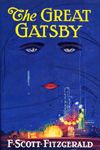 Genre: Historical Fiction
Genre: Historical Fiction
3 stars
I bet you're thinking, "I had to read that in high school, and I don't even remember it. It must not be good." The issue with high schoolers is that they're restless; it's difficult to give ample attention to really good works of art. Kids are so focused on what happens next that they miss much of what is happening right before their eyes.
You want to give this story another go with an adult's view this time. Take time to revel in Fitzgerald's descriptions of "frothy scent of plum trees" and "salads in harlequin designs". His evocative images give the impression of time travel. You will be transported, partying with the rest of them with not a care in the world. Until you really look below the surface.
Because Gatsby's world is an illusion. An illusion of flowery parties till dawn, fancy cars, and everything is at his disposal. His mansion drips with wealth. His manners and dress are impeccable, and makes sure every phrase and gesture is proper. But Gatsby himself remains elusive. Showing up briefly to make sure his guests are comfortable, he soon disappears, further fueling all of the speculation as to the source of his wealth.
But why does Gatsby throw all of these fabulous parties? It doesn't seem like he really has any friends. The people who come to his parties seem vapid, with no purpose but attending the next party or polo match. The fabulously wealthy. Gatsby keeps hoping that word of his legendary parties will reach his one true love: Daisy.
To that end he enlists Daisy's cousin, Nick, who just happens to live next door to Gatsby. Gatsby asks Nick to invite Daisy over to tea, but warns him not to tell her that Gatsby will be there. This fairy tale encounter flings them into an inevitable destructive spiral. Fitzgerald, who experienced these frivolous "Roaring 20s", shows the chasm that existed between Daisy and "old money" (represented by those, like Daisy, who lived on the East Egg peninsula of Long Island, NY) and Gatsby and his "new money" (represented by those, like Gatsby, who lived on the West Egg). Even though it's the same amount of money, it doesn't seem to matter. No matter how hard people try, they cannot bridge that gap.
It's a poignant point to consider. With all of our supposed sophisticated progression do you think that times have changed?
Altar of Eden by James Rollins
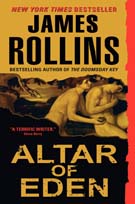
Doesn't it feel like at times that there is an eerie connection with someone you love? Like, you happen to be thinking about your daughter and the phone rings. Sure enough, it's her on the line. This happens to me quite often. It must happen to other people, or at least to this author, James Rollins, enough for him to explore an explanation to this phenomenon in Altar of Eden.
As the title indicates, the story hinges on the Bible’s account of creation. Not just that God created man and beast, but how they connect to each other and themselves becomes the powerful reason for the creation. As usual, we all cannot just live in peace. And again, in this case, there is the inevitable "serpent in the garden".
Dr. Lorna Polk, a renowned veterinarian, who works at the prestigious ACRES research facility is called upon to examine animals that have been involved in a shipwreck. The curious part of this assignment is that all of the animals have some kind of anomaly: a featherless parrot, an albino jaguar with extremely long canine teeth, etc.
Upon further inspection, and after testing, she and her team find that all of the animals have an uncanny biological connection. Just as they are trying to determine how this happened, they are attacked by a deliberate militaristic force.
Someone is trying to protect the secret connecting the animals.
Lorna teams up with Jack Menard, a Border Patrol agent assigned to investigate and protect the other members of the team. When Jack walks up, Lorna's past rises up, flooding her with raw emotion. Jack is the brother of Lorna's dead high school sweetheart. Lorna hasn't seen Jack since that fateful night and now struggles to be professional and aloof to her once-though buried emotions.
Set in the Louisiana bayou and then in the idyllic Caribbean paradise, this fast-paced, active thriller keeps the audience wondering what else can possibly happen. The concepts presented have a familiar "what if?" element consistent in James Rollins novels, making this more than a story. Then end may surprise even the savviest of readers. I love that.
Midsummer Night by Freda Warrington
 Genre: Fantasy
Genre: Fantasy3 stars
Just in time for leprechaun season, this book is full of aetherial fantasy. Even though it is set in Scotland and not Ireland, you'll feel the magic spiraling among the characters in this evocative tale.
It begins with a practical joke gone terribly wrong. Three kids try to scare their uncle, who is obsessed with the idea of the Dubh Sidhe, the fairy people who supposedly traveled in and out of time, in the forest near Cairndonan, his estate. He was persistently trying to snap photos of them, to prove he wasn't crazy. Often, like this night, he hiked into the woods, lugging his camera equipment trying to catch a glimpse of them. The kids decided that they would dress up to look like the fairy people just so their uncle would have his picture, and to poke fun at the old guy. But the kids got more than they bargained for. Unfortunately on this night, he had his proof and witnesses, but there would be no photo.
Years later a young woman, Gill, a world-class athlete who has had a career-ending injury, rents one of the cabins on the Cairndonan. She plans to find serenity in the remote estate and to try to figure out her next path in life. The current owner of Cairndonan, Dame Julianne Flagg is a renowned sculpture artist who also offers extended art classes on the estate. She has employed another art instructor, Peta to help her with the many students. Even though Gill tries to avoid everyone, quite by accident Peta befriends Gill. Together they embark on a journey to discover the truth behind the secrets swirling for decades on the mysterious estate, and how they connect with the Dubh Sidhe.
This is an intriguing story including mysterious standing stones and supposed portals to other worlds or time periods. The author intricately crafts her images, making sure her readers slow down to appreciate her scenes. However, sometimes they can be a bit cumbersome. The characters are likable and well-developed, which adds to the overall story. In addition, the author makes sure she sews up all of the loose ends neatly, instead of abruptly ending the story as is all-too-common.
If you love fairies, gorgeous descriptions, twisting plots and fantasizing about traveling to worlds unknown, you will love this book.
The Thirteenth Tale by Diane Setterfield
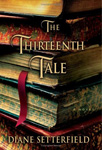 Genre: Mystery
Genre: Mystery
4 stars
Don't you just want to know the rest of the story? That's why Paul Harvey was so popular. In this compelling novel, Setterfield frames her tale within a tale, keeping her readers guessing and speculating until the very end.
Rich with imagery, this story weaves in and out between the lives of the main character, Margaret, and a well-known novelist Vida Winter. Margaret lives and works in her family owned bookstore, quietly reading and taking care of the treasured books in her guardianship. The bookstore deals with mainly antiquated volumes, priceless first editions and books from estate sales. Even though their existence seems benign, secrets lurk among the dusty volumes of their lives.
Curiously, one day a letter arrives, commissioning her to write the biography of a famous modern novelist, Vida Winter, whose work she has never read. In their bookstore they do, however, have a rare edition of Miss Winter's entitled Thirteen Tales of Change and Desperation. In considering this project Margaret decided to read this book. The funny thing was, she discovered that there were only twelve tales, not thirteen. She found out later when she told her father about the commission that this particular book was actually a rare edition. The subsequent editions deleted "Thirteen" and were just entitled Tales of Change and Desperation. Turns out, this deletion has intrigued Miss Winter's fans and they all, including Margaret, wanted to find the thirteenth tale. What's more Margaret has only published one piece and wonders why Miss Winter wants to entrust her story to such an unstoried writer. It's too compelling, however, so she journeys north to discover the truth.
Miss Winter has avoided telling the truth about her mysterious past, inventing a new story each time she is interviewed. Now, for reasons yet undisclosed, she has decided that the world needs to know the truth. Margaret is skeptical; she does not want to get duped as others have previously. She asks Miss Winter three questions and then leaves to verify them.
Satisfied with the answers Margaret decided to write the biography. Little did she know that she would be engulfed in a world of secrets that even the savviest reader cannot predict.
And don't you just love that? I am not saying that you won't be able to guess at some of the elements, but when all is revealed, you'll have a sense of satisfaction and closure that is rare.
Life of Pi By Yann Martel
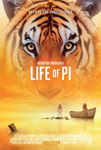 Genre: Magical Realism
Genre: Magical Realism
4 stars
This book just confirms my feeling that I am to stay away from cruises. Dark water has always frightened me, in addition, whatever is lurking just beneath the surface.
Not only does Pi, the main character need to worry about sharks, but some of the menagerie he was traveling with when the ship sank, ended up on the same lifeboat. And, these were not cute and cuddly animals that you might want to snuggle with. Ironically, Pi is faced with fighting for his life on the lifeboat. Fortunately, the boat is well-stocked with survival gear and provisions; he just has to find a way to access them with a couple of man-eaters on board.
Drawing from his experience tending fierce, wild animals in the zoo his parents owned in India, Pi tackles daily struggles and challenges on the boat which would surely seem daunting for most people. His story is mesmerizing.
But what will shock you is the second story he tells.
This book has now been made into a major motion picture.
Blood Line by James Rollins
 Genre: Adventure/Magical Realism
Genre: Adventure/Magical Realism
4 stars
What if we could live forever? Would we want to? What would have to change in order to achieve immortality? Do we already have the technology?
James Rollins weaves an intertwining tale, taking us on a wild ride, spanning several continents, delving into the mystery of the Tree of Life. The rich and varied characters of his Sigma Force division of the US government's shadowy, undercover world spring to action when the President's daughter is kidnapped. While she and her husband were "vacationing" on a yacht cruising around the in the Seychelles islands off the eastern coast of Africa, masked men board their yacht, savagely slaughtering her husband. At first it appears, given the location, that the perpetrators are Somalian pirates. While that seems scary enough, they discover that compared to the group who actually abducted her, pirates seem tame. And, what they have in store for her and her unborn baby will shock you.
Technology and biology combine to suggest that there are far more possibilities for the longevity of life than what we realize today. Rollins explores these avenues with break-neck action, snappy dialogue and an ever intriguing plot line that seems fantastical, yet almost plausible. And don't you just love a satisfying ending? This one satisfies, and offers a cliffhanger as well, leaving the reader yearning for more Rollins magic.
Her Fearful Symmetry by Audrey Niffenegger
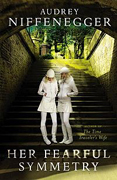 Genre: Magical Realism
Genre: Magical Realism
Enamored with London during this magical Olympic season, I dived into another book by the same author who wrote The Time Traveler's Wife. Similar to that book, Her Fearful Symmetry delves into unexplained phenomena.
American twins Julia and Valentina are suddenly bequeathed a London flat and a generous income from an aunt, Elspeth, who has just passed away. Curiously, they have never met this aunt and their mother is strangely reticent about her. In addition, according to the provisions of the will, the twins must live in the flat for a year before they fully inherit and neither of their parents is allowed into the flat. Undaunted, they wing their way to a new adventure. At least one of them is excited.
When they arrive in London, they discover that the flat is in a building adjacent to Highgate Cemetery, which seems a bit creepy, but they press on. They find it a bit challenging to negotiate their way into London society, especially since they have never lived on their own, despite the fact that they are in their early 20s. They try to meet their neighbors (one has extreme OCD), but the most important one, Robert, remains elusive.
Robert was Aunt Elspeth's (much younger) lover, and is named in the will as the guardian of any information the twins might have about Elspeth. The problem is that Robert has seen the twins and is shocked to discover that they look exactly like her deceased aunt only 20 plus years younger. He decides to follow them on their London sojourns-quite creepy-because he cannot face the young Elspeth's faces just yet.
The creepiness continues. The twins notice changes in the flat that they did not make. Valentina, especially, feels a "presence" in the flat that she cannot explain. Eventually, when Robert drums up the courage to meet them, the three discuss the atmosphere in the flat.
What they encounter will totally rock this world, and the next.
The Hunger Games by Suzanne Collins
 Genre: Futuristic, Action
Genre: Futuristic, ActionRating: 3 stars
Kids killings kids. I have to say that I avoided reading this book due to the subject matter. However, I succumbed, because I wanted to see what the fuss was all about. Turns out, I was missing out on some pretty decent imagery.
Ok, like Twilight by Stephanie Meyer, this book did make me feel like I was a high school girl again, but, unlike Twilight, this seems more realistic, as though it could actually happen in the future. This female protagonist is stronger as well. I like that.
Katniss, the main character, has taken over as the primary provider since her dad got blown up in the mine where he worked. She, along with her mom and little sister, Prim, live in District 12, the farthest district from the Capitol. The main industry for this district is coal mining, which means this district is very poor. Everyone is forbidden to venture beyond the supposed 12-foot electrified and barbed-wire fence into the woods where an abundance of game can be found. However, Katniss and her friend Gale augment their families' living by wriggling under the fence and hunting and trapping game with their bows and snares.
Once a year each of the twelve districts are forced to have a lottery, choosing two teenagers to fight to the death in the Hunger Games. If they don't, the all-powerful leaders will manipulate the weather and food supply and some forces even more sinister to bring them into compliance or face annihilation.
As you have probably predicted, Katniss ends up in the arena, fighting for her life. The sweet part of this book is that the author throws in so many curves that most of the story is not predictable. Which I love. She also keeps the action moving, so the pages fly.
Even though the subject matter is disturbing, Collins makes her readers want to root for the oppressed. And, isn't cheering for the underdog what we all love to do?
The House of Silk by Anthony Horowitz
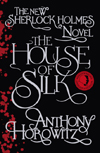 Genre: Mystery
Genre: Mystery
Plunge into mastermind Sherlock Holmes' captivating world of criminal investigation that swirls with intrigue. It's really fun to try to figure the mystery out before he does. Be warned, though: you need to pay attention if you want decipher all of the elements.
Horowitz captures the full essence of the Sherlock Holmes character in this continent-hopping mystery. True to form there is more than one adventure that intertwines that Dr. Watson, his sidekick, and his readers are invited to help solve. This caper has Holmes looking into the murder of an American philanthropist that seems to point to the only surviving member of a fierce gang. His quarry has been tracked to London and this is where Holmes takes on the mission to catch the culprit.
Employing street urchins to gain information in their own environment, unfortunately leads to another murder. Surprisingly, a thin white silk ribbon is tied, post mortem, to victim's wrist. It seems as though it is similar to one that was inexplicably mailed to him recently. This new puzzle leads Holmes and Dr. Watson into a seething pit of filth as they uncover unspeakable atrocities.
This wild ride will fling you into a conundrum eventually solved with a startling outcome.
People of the Book by Geraldine Brooks
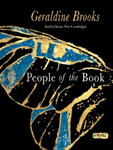 Genre: Historical Fiction
Genre: Historical Fiction
When I first read this title it intrigued me. Several questions swirled: What book? Who were the people? Why were they of the book? And what did a butterfly wing on the cover of this book have to do with people or the book? Turns out, this book really held my attention with its twists and turns. It traces the journey that a copy of a haggadah, a sacred Jewish Passover Seder text, travels between several countries and continents.
Hanna Heath, an archivist, is charged with reinstating the book to its former glory. She doesn't want to restore it to mint condition, however. She feels that it would lose all of the history contained in its wine and blood-stained pages. Instead, she repairs what doesn't affect the integrity of the chronicle. As she turns each page, it seems like a new puzzle pops up. Thus, she undertakes the enormous task of solving the many mysteries contained between the covers of this beautifully illuminated sacred tome. While chasing the butterfly of elusive answers, her painstaking patience is rewarded. She discovers that some of the people's challenges are similar to her own and the centuries seem to meld together. Resonating with the struggles and triumphs of the characters she uncovers, ultimately she becomes one of the people of the book.
Extremely Loud & Incredibly Close by Jonathon Safran Foer
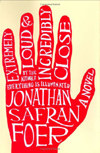 Genre: Realistic Fiction
Genre: Realistic Fiction
I have to admit; this book was incredibly close. The issues that the main character, Oskar, discusses resonate, sometimes uncomfortably, with his audience. The setting is post 9/11 in New York City. While he works out all of his problems, the readers are swept away in his seemingly never-ending stream of consciousness. Oskar is a bright boy who, because of his exceptional mind, hints at the challenges he has with social interactions at school. However, Oskar and his dad had a very unique and loving bond whom he connected with almost seamlessly. Then, the nightmare began and Oskar has to fight his way through it by embarking on a quest he deems necessary to survive in his post 9/11 world.
Foer shows us, extremely loudly, that there are individuals who have different ways of thinking, but whose feelings reverberate universally. This is a worthwhile read, but prepare to be uncomfortable.
Crucial Conversations

The notion of "fight" or "flight" when people feel threatened constitutes many communication challenges in the workplace. Either people want to stand up for what they believe in, question why they have not gotten a promotion or just plain argue (fight), or they completely walk away from an argument, becoming disengaged, silent and non-communicative, fearing the badgering or dogmatism of a colleague (flight).
But do people have to choose one or the other? How about trying to change the climate of your workplace or your home life by making it safe for all members to voice their opinions without fear of repercussions or condescension? Making it safe requires all parties to suspend their own agendas for a while in order to hear other perspectives. And when ideas surface, they usually give rise to productive, viable options, rather than controlling, sometimes nearsighted, dictatorial mandates.
Here is an example. A worker was hired in a government position where he had several tasks to complete each day. His, as well as his colleagues' case load increased to a level that it was unable to be completed as usual. The rest of the group became stressed and angry that they were not given some extra help, nor were they being validated compared with other governmental departments. Instead of becoming upset at what he could not control, this particular person offered solutions for organizing the work more efficiently. He also realized that running and doing shoddy work would not benefit the reputation of the department, nor would the managers realize how much they needed help. In addition, when he was left in charge, he implemented sound strategies for organizing work, so that the work could be finished professionally and in a timely manner. The climate of the office changed and everyone went home stress-free, feeling validated, looking forward the next smoothly productive day.
In one of his professional development seminars, this particular worker was introduced to the book Crucial Conversations. He used many of the ideas covered in this book to cleanse his toxic workplace atmosphere.
Crucial Conversations offers many strategies to make the climate and the conversations safe for people to share ideas in the workplace as well as on the home front. When people feel safe, morale rises, thus expanding productivity.
Check out these useful ideas to better communication.
Of course, in order for these strategies to be completely effective, every member of the working community would benefit by the education of reading and applying this plan of action.
Driftless by David Rhodes
 Genre: Realistic Fiction
Genre: Realistic Fiction
At first I didn't want to read this book. Driftless seemed to be lumbering and cumbersome, lurching through rural Wisconsin. But, since my best friend from childhood gave it to me, I decided to give it another go.
I must admit; it unnerved me. I had to set it down and leave it alone intermittently, anticipating some of the foreshadowing and subsequent occurrences and religious rhetoric.
Some of it was all too familiar. This book is astonishingly accurate when it comes to fundamental Christian beliefs, actions and reactions. Even though I'm not familiar with Wisconsin, I can see similarities that I saw in my grandparents' lifestyle in Michigan: milking (Jerseys and Holsteins), haymows, peach pies, barnyard smells and pickup trucks. In this book I see parallels with my dad's struggle to rise from a quicksand of poverty. It sucked him down with every newborn child, harsh Michigan winter of no work, and his profession that left him bone tired and broken.
Capturing the nuances of his characters' lives this author weaves a masterful tale that intrigues, yet dismays his readers. They hope for the best, all the while realizing that there are no fairy tales.
I always knew farming was dangerous.
Jester by James Patterson and Andrew Gross
 Genre: Historical Fiction
Genre: Historical Fiction
James Patterson is known for his murder mysteries, so when I saw this title, I was immediately intrigued. Knowing that jesters were present at court a thousand years ago, I wondered whether this book would propel me into a Dark Ages fairy tale. I was not disappointed.
Set in France in the late 1000s and early 1100s, the serfs are weary of the constraints of feudal life and long to be free. Many join Peter the Hermit to fight in the Crusades for the glory of God. But things are not what they expect. One man, who has grown up a jongleur and performer discovers horrors on the battlefield and returns home early to discover even greater horrors. His wife has been abducted and wildly sets off to rescue her. Eventually he takes on a jester persona to gain information as to her whereabouts. In the meantime he makes several friends in high and low places. This man holds a treasure more valuable than anything, and he doesn't even know it. In the end, using the treasure, he will fight for everything true and just in the world.
If you like thrilling action and quick wit, you'll eat this book up. Every once in a while it's beneficial to read about ancient lifestyles and the lack of conveniences and technology that we take for granted. After reading this book I thanked my servants. Their names? Washer, Dryer, Dishwasher, Car, Computer, Phone, TV, Faucet, Plumbing, Electricity...
Characters:
Hugh du Lac-peasant who fights in the Crusades and later becomes the jester
Sophie-Hugh's wife and true love
Baldwin-unjust lord of Treille and Hugh's village
Norcross-ruthless knight of Baldwin's
Emilie-a noblewoman who sees a leader in Hugh
Lady Anne-Lady of Boree
Stephen-ruthless Lord of Boree
Norbert-jester at Treille-teaches Hugh his tricks
Morgaine-Black Cross knight, responsible for unspeakable cruelty
Outlander by Diana Gabaldon
 Genre: Action and Adventure, Historical Fiction
Genre: Action and Adventure, Historical Fiction
When September floats into our senses, it's time once again to curl up with a delicious book. One of my favorite series is the Outlander series by Diana Gabaldon.
I've always been intrigued by the notion of time travel. Even cooler is the mystery surrounding "standing stones" in Scotland and their supposed power. Gabaldon ventures into a fairy land of possibilities suggesting that "travelers" (unexplained phenomena) have moved between eras in order to accomplish what others cannot. Taking place between different centuries in Scotland and then later America and the Caribbean, Gabaldon at once shows us how fortunate we are to have all the modern conveniences, and also how we could actually survive on a lot less. However, she is not preachy.
I was delighted to discover that both of the main characters, Claire and Jamie, (present in the whole series), have a fire burning in them, fueling the reader's appetite. Strong, yet likable. Their souls are forever connected.
It is clear that Gabaldon researched extensively. Where boring High School History classes fails, novels like these show a whole new way to learn about how our ancestors interacted. Her dialog is snappy; her descriptions send the reader into the bog/mountain/hold of a ship/ and we feel every ache, revel in every spectacular sunset. The reader gallops along chuckling at the sharp, witty ancedotes. Too soon, even after such a thick book, the adventure is suspended, at least until Claire and Jamie meet again.
Here are the titles in this series:
Outlander
Dragonfly in Amber
Voyager
Drums of Autumn
The Fiery Cross
A Breath of Snow and Ashes
An Echo in the Bone
**Now a TV series on the Starz network!
Sandstorm by James Rollins
 Genre: Action and Adventure
Genre: Action and Adventure
Delving below the surface we uncover treasures in this book that amaze and intrigue us. Seemingly impossible, Rollins suggests scenarios that could be summarily dismissed as a brilliant fictitious storyline, and yet, we wonder, could this actually happen? Always at breakneck speed, the action careens through the exotic environs, this time in Britain and the Arabian Peninsula, leaving the reader breathless. Mystery swirls around Painter Crowe and his elite Sigma Force crew as they are called in to investigate an other-worldly explosion at the Egyptian collection at the British Museum. The accomplished and gorgeous curator, Safia al-Maaz and her best friend and millionaire patron of the collection, Lady Kara Kensington, seem to be at the heart of the trouble, but they don't know why. A small kernel of doubt begins to grow about a major event in Lady Kensington's past and she insists on joining the investigative team.
But this is just the beginning of a quest for answers that leads them to the Arabian Desert and valuable secrets that have been protected for millennia. Evil forces threaten to uncover the secrets and exploit them for their own agendas. Swept along with the sandstorm of riddles and captivating action the colorful characters keep us guessing: Who's the good guy?
As usual Rollins crafts his stories with a futuristic element that seems farfetched. However, even though we know this is a work of fiction, we always file it in the back of our psyches, thinking, "maybe, someday..."
The Birth of Venus by Sarah Dunant
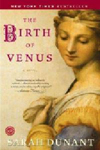 Genre: Historical Fiction
Genre: Historical Fiction
Stories set in Europe in the Dark Ages or in this case the Renaissance often swirl with shadowy mystery. We Americans can never feel the same mystique since we live in a relatively new country. We don't have all of the gothic history that comes with the exquisite architecture and powerful ruling classes. Most of the time we are thankful that we escaped the oppression, and have the choice to pursue our chosen happiness whatever our station. But sometimes, we peek into the past and wander through a warren of scuffed cobblestoned passageways. Twisting and turning
Stories like this one beckon with rich imagery, inviting us to discover what is waiting just around the corner.
A tale of Renaissance Florence just as the Black Plague hits. Alessandra, a self-assured, educated young woman winds her way through trials of a wealthy, yet cloistered privileged existence. At sixteen she is married to a much older bachelor in order to escape being sent to convent for safety. He is tolerant and actually encourages her to paint, giving her access to his personal library and artists materials. However, there is a horrifying secret behind his benevolent smile. One that threatens to tear her family apart.
Characters:
Alessandra-daughter of a wealthy textile merchant
Plautilla-Alessandra's older beautiful, yet dim sister
Tomaso-Alessandra's handsome brother
Luca-Alessanda's oafish brother
Painter-Alessandra's true love
Savronella-zealous priest
Erila-Alessandra's personal black slave
The Boleyn Inheritance by Philippa Gregory
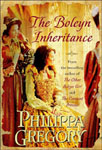 Genre: Historical Fiction
Genre: Historical FictionDon't you just imagine fancy balls and masquerades in the English court at Christmastime? Here's a title that will immerse you into the intriguing lifestyle of Henry the Eighth and his entourage.
As the title implies, we learn what the consequences were for those in the wake of the disastrous marriage between King Henry and his second wife, Anne Boleyn. Everyone at court walked on eggshells due to Henry's volatile disposition. After the initial meeting with his newly betrothed Anne of Cleves (from Germany) goes awry, Henry eyes immediately start to rove. Even though he marries Anne, they can never really bond. As usual, families were trying to elevate their status in his eyes, this time with 15-year-old Katherine Howard. Katherine delights Henry and his former sister-in-law, Jane Parker Rochford, tries to facilitate whatever and wherever she can in order to keep a tenuous hold on her position in court. By doing so, she retains the Boleyn Inheritance. It's just not the inheritance she had in mind.
The Bone Garden by Tess Gerritsen
 Genre: Historical Fiction/Time Travel
Genre: Historical Fiction/Time TravelSince I have been interested in TV shows like CSI and Bones, the title drew me in. This is a story of a divorcee who buys a house badly in need of TLC, and actually flip-flops between modern day and the early 1800s after some human bones were found in the backyard. She bought the house so that she could immerse herself in the project and try to forget the hurt inflicted upon her by her former husband. One of the descendants of the previous owner contacts her and asks for some help going through some old letters, which might be helpful in trying to discover the owner of the bones in the backyard. While reading the letters, the lives and shenanigans are revealed from previous generations. A fun twist at the end.
The Constant Princess By Phillippa Gregory
 Genre: Historical Fiction
Genre: Historical Fiction
How would you like to leave your home at age, never to return to the loving arms of your family's embrace? This is life story of Catalina of Aragon, the Spanish princess and her ascent to power in England from her own perspective.
Betrothed at three years old to the English prince Arthur, the Spanish princess Catalina of Aragon was destined to be the next Queen of England. Always mindful of her duty, she fiercely fought to keep hold of that tenuous royal thread.
I was very surprised by this account, having seen a movie disparaging her and romanticizing Anne Boleyn in my teens. This account portrays Catalina, nee Katherine, as she is known in England, as a strong, yet benevolent and patient princess and queen. Readers will admire her strength and her political and tactical savvy as she navigates her ever changing paths to the throne. This book shows just how dangerous and precarious life could be in the 1500s, even, and possibly especially for those born to rule.
The Grimm Legacy by Polly Shulman
 Genre: Young Adult Fantasy
Genre: Young Adult Fantasy
Strolling along with Elizabeth, readers sense a strong kinship when she deals with the tangled culture of every day high school. At first, even the part time job she lands seems somewhat benign and normal. However, her job at an unusual lending library whirls her into a world of secrecy and enchantment.
This book is not just an easy-read. Author Polly Shulman crafts her characters to exude honest, believable personalities, ones that anyone can identify with. The aspect I find most refreshing is that her characters are forth-coming with their thoughts. She doesn't hold her readers hostage by making her characters withhold what they really think for the sake of "suspense". Even so, there is plenty of intrigue and fast-pace action as co-workers Elizabeth, Marc, Anjali and Aaron try to unravel the dangerous mysteries cropping up every time they shelf an item. They want to trust each other, but too many furtive actions threaten to pit friend against friend as enemies plot to expand their evil obsessions.
The Particular Sadness of Lemon Cake by Aimee Bender
 Genre: Magical Realism
Genre: Magical Realism
Ok, right off the bat the title draws the reader in. Why would lemon cake be sad? Cake is usually associated with happiness and celebration. Intrigued, we delve into this story about Rose's life and her unusual perceptive talents about how people are feeling. Is it possible to read people the way she does? Do we all have talents that we suppress or at least are untapped? Bender highlights all the talents in in Rose's world, and how they swirl and grow once they are nurtured. She asks the questions of whether we should let them shine or whether we should quash them and the implications of both. Bender suggests that it's OK to be scared. No matter what, people should embrace their gifts and let them shine.
Book Club Questions
How is this book an allegory?
Why does Rose's father decide not to use his gift?
What is Joseph's gift? What is the author commenting on?
Since the main characters in this book have special gifts and talents, is the author sending the message that everyone has a particular talent? Why or why not?
Is it our "duty" to use our talents to their greatest potential?
The Passage by Justin Cronin
 Genre: Science Fiction-Apocalyptic
Genre: Science Fiction-Apocalyptic
We thought we were safe. Little did we know that high up in the cliffs of Colorado an evil experiment threatens our sweet everyday American Dream. Snatching death-row convicts from the 12th hour needle seems at first like a miracle to these felons. However, they soon find out that there is a very different kind of hell than the one they were previously headed for. They are still held prisoner, but we get an uneasy feeling that the security in this prison is tenuous.
Trying to save the world from a monstrous mistake falls on the waif-like shoulders of Amy, a mysterious teenager who communicates by projecting her thoughts. The Colony of survivors cannot help but welcome her inside the precarious protection of the Wall, instinctively feeling that she will somehow help lead them to sanctuary. However, sometimes instincts don't save you.
The Ruby Notebook by Laura Resau
 Genre: Contemporary Fiction
Genre: Contemporary Fiction
They say that you shouldn't judge a book by its cover, but while perusing a local library, this book was on top of one of the shelves. "Ruby" just called to me. The fact that ruby is my birthstone, is a gorgeous color, and with that fancy font, this book beckoned and willed me to pick it up. Looking closer at the cover made me wonder where the girl was heading and into which "old town". When I turned the book over and saw that the setting was in Aix-en-Provence in the south of France, I knew I was hooked.
Ever since elementary school, where we learned conversational French for 20 minutes every day, everything French has intrigued me. This feeling has intensified after my sweet husband and I visited France a few years ago, experiencing THE BEST FOOD WE HAVE EVER TASTED in every cafe, patisserie and restaurant we visited! We delighted in exploring the vieux villes and marveled at the architecture and the markets that have continued for hundreds of years. So, for me, if I can learn more about France, Aix (pronounced "X") really does mark the spot.
And indeed, the main character, Zeeta, is awed by Aix's "hyper cool" architecture and its many fountains. She and her mom, whom she calls by her first name Layla, are travelers, never staying in one place very long. While she is receiving a wide and varied education, she is often the responsible party of the two. Zeeta understands that she needs to contribute to the family's income and does so by tutoring French students in English. This does not curb her social life, however. She stumbles on several mysteries while tutoring, involving the love of her life and after discovering random objects in her bag with cryptic messages attached to them. She records all of her musings in her ruby notebook, while trying to get to the bottom of the mysteries.
Rich and varied this book hooks its readers and bathes them in the rejuvenating waters of Aix-en-Provence. The Ruby Notebook is an easy and charming way to wind your way along the ancient paths in Aix. Your mouth will water just thinking about all those delectable croissants you're missing.
The White Queen by Philippa Gregory
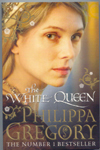 Genre: Historical Fiction
Genre: Historical Fiction
Have you heard of the book The Other Boleyn Girl? This book, by the same author, is yet another intriguing look into the world of British monarchs and their tenuous hold onto the Crown.
In the time of the War of the Roses, we are swept away by the granddaughter of the water goddess Melusina, Elizabeth Woodville. As the most beautiful lady of the realm, she mesmerizes the newest challenger to the throne, Edward, who is from the dreaded House of York (white rose). Even though she is from the Lancaster line (red rose), she aspires to capture his heart and form a dynasty together.
At times it's a bit difficult to keep track of all of the different Edwards, Elizabeths, Margarets and Richards, since they tended to name their children the same names over and over again, but Gregory weaves the mystical witchcraft skills that Elizabeth and her mother Jacquetta possess into the action, keeping the reader wondering how the spells and curses will change the course of action.
Books that Make Great Anniversary Gifts
Now I know some people do not like to read. However, here are a few ideas for book lovers as well as those who think they don't love books:
Find a coffee table book on a destination you plan to visit in the future
A book showcasing your partner's favorite art
A new recipe book
A travel guide book
A comedy book like Dave Barry or Jerry Seinfeld
The Language of Flowers
A rare first edition of your partner's favorite classic